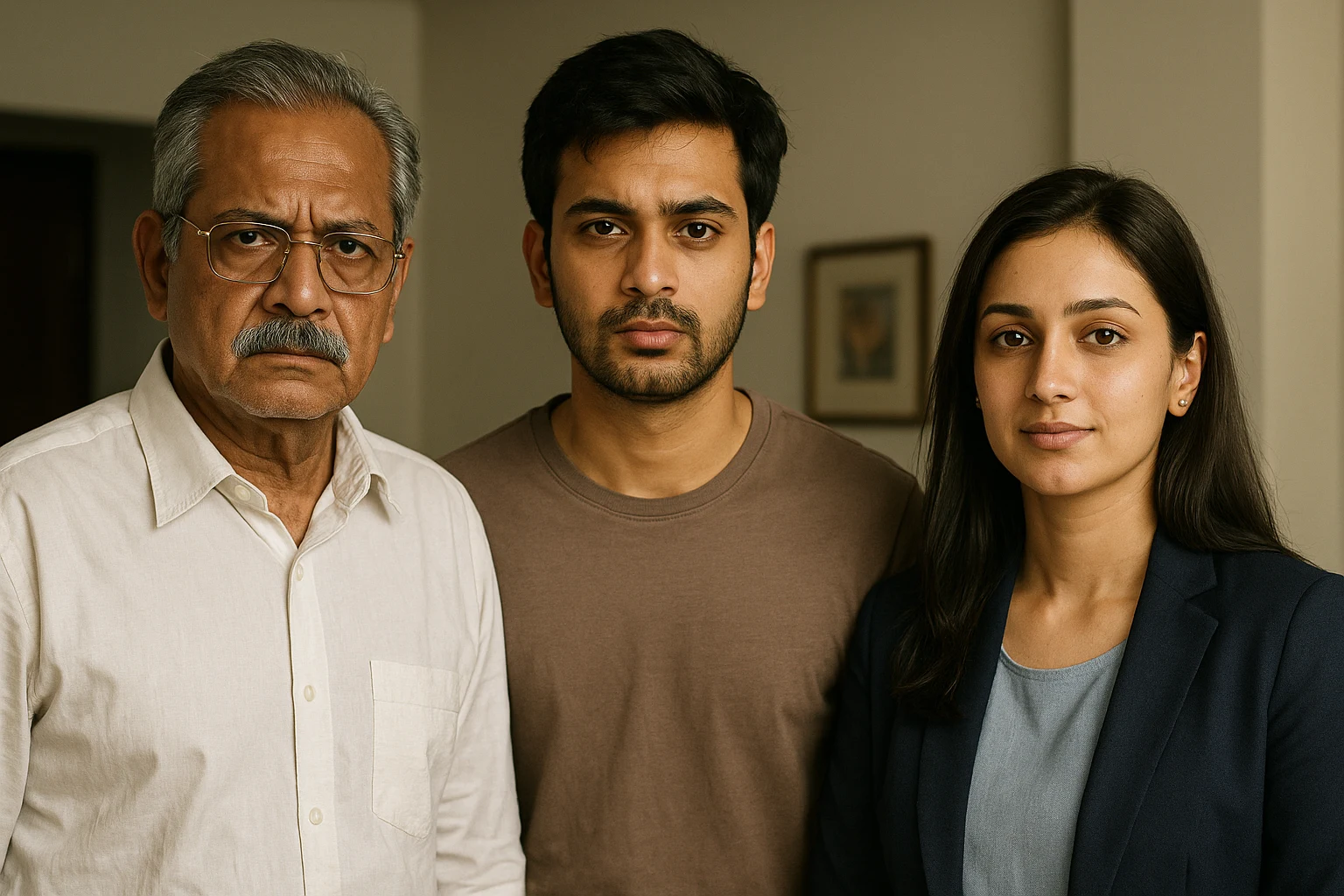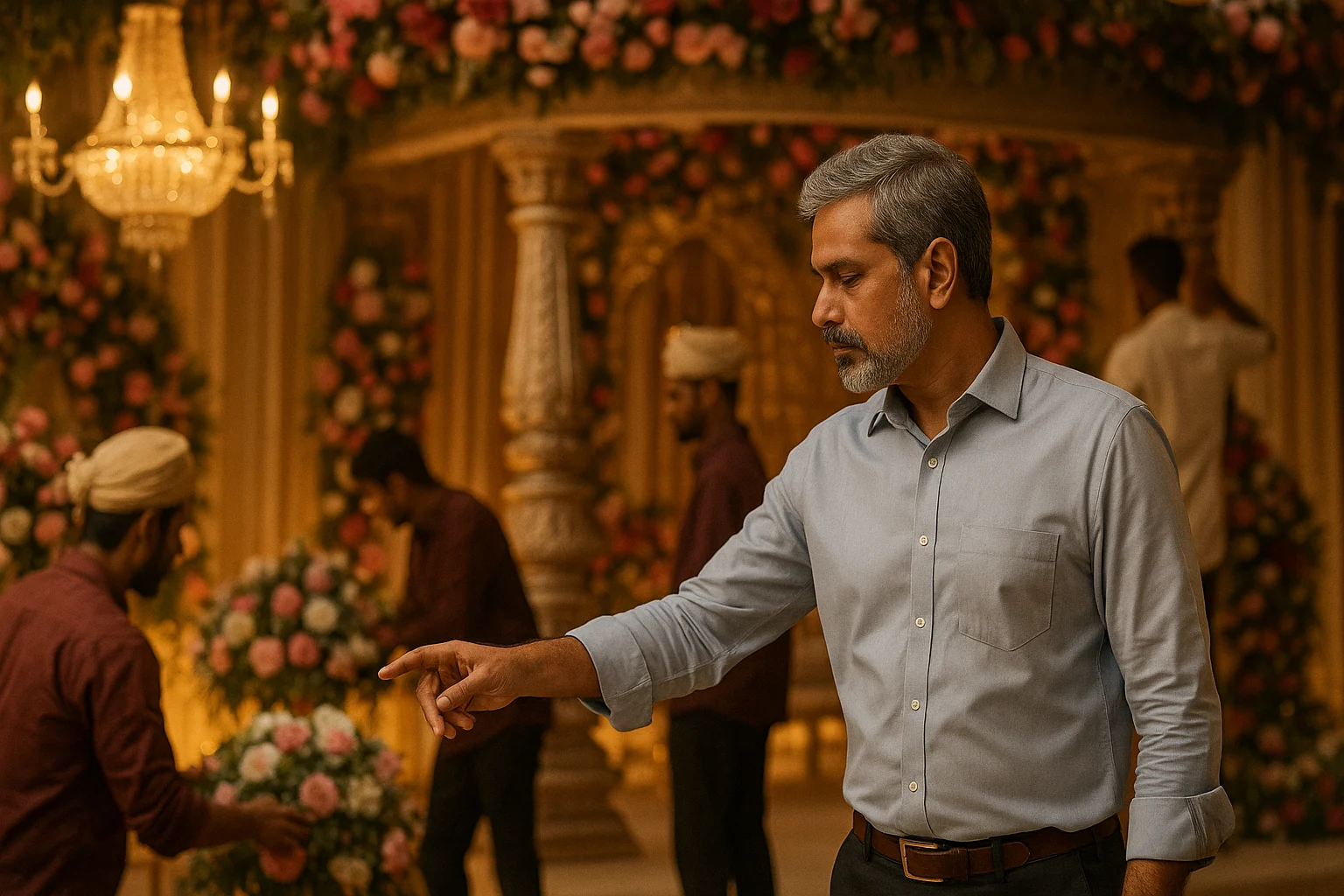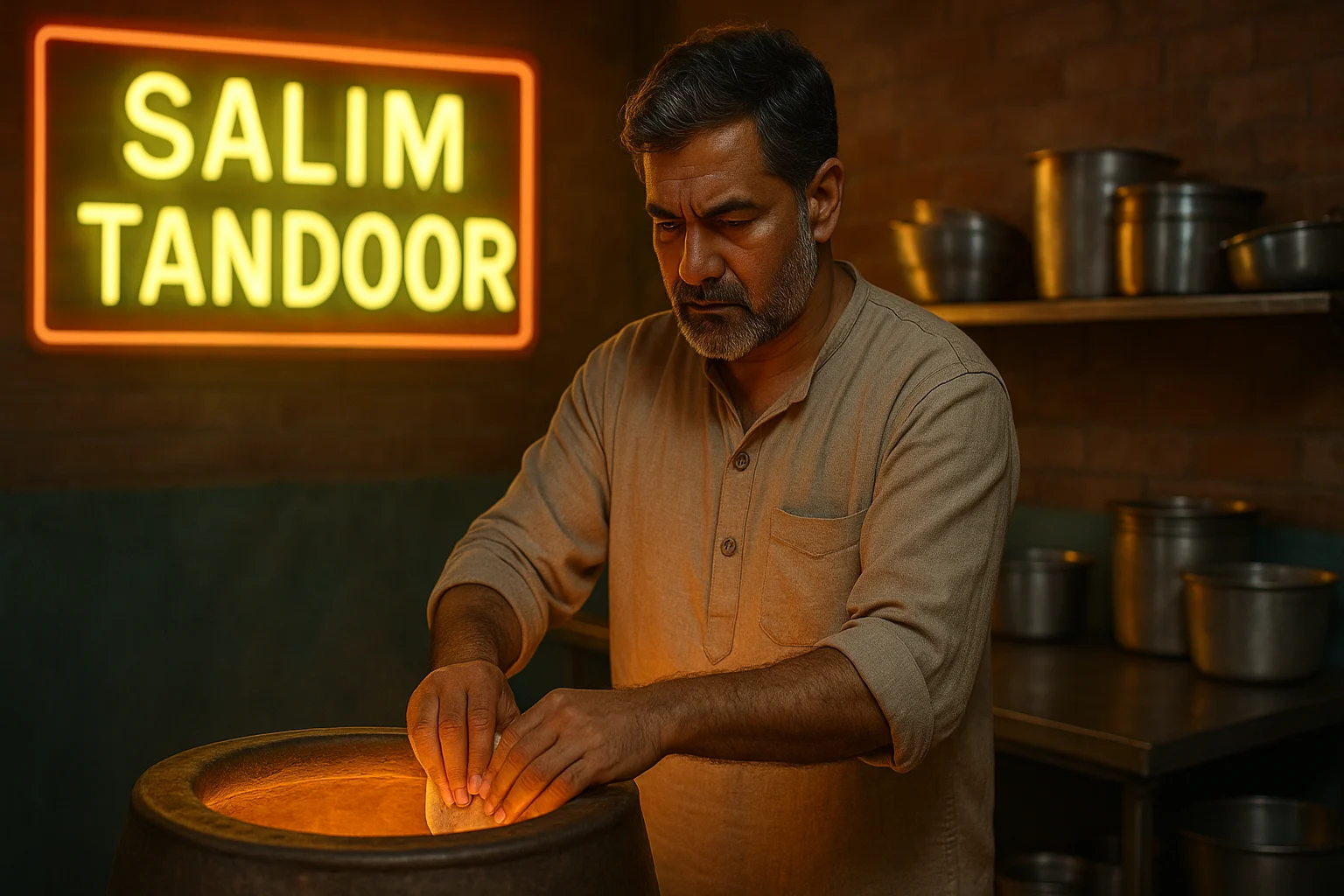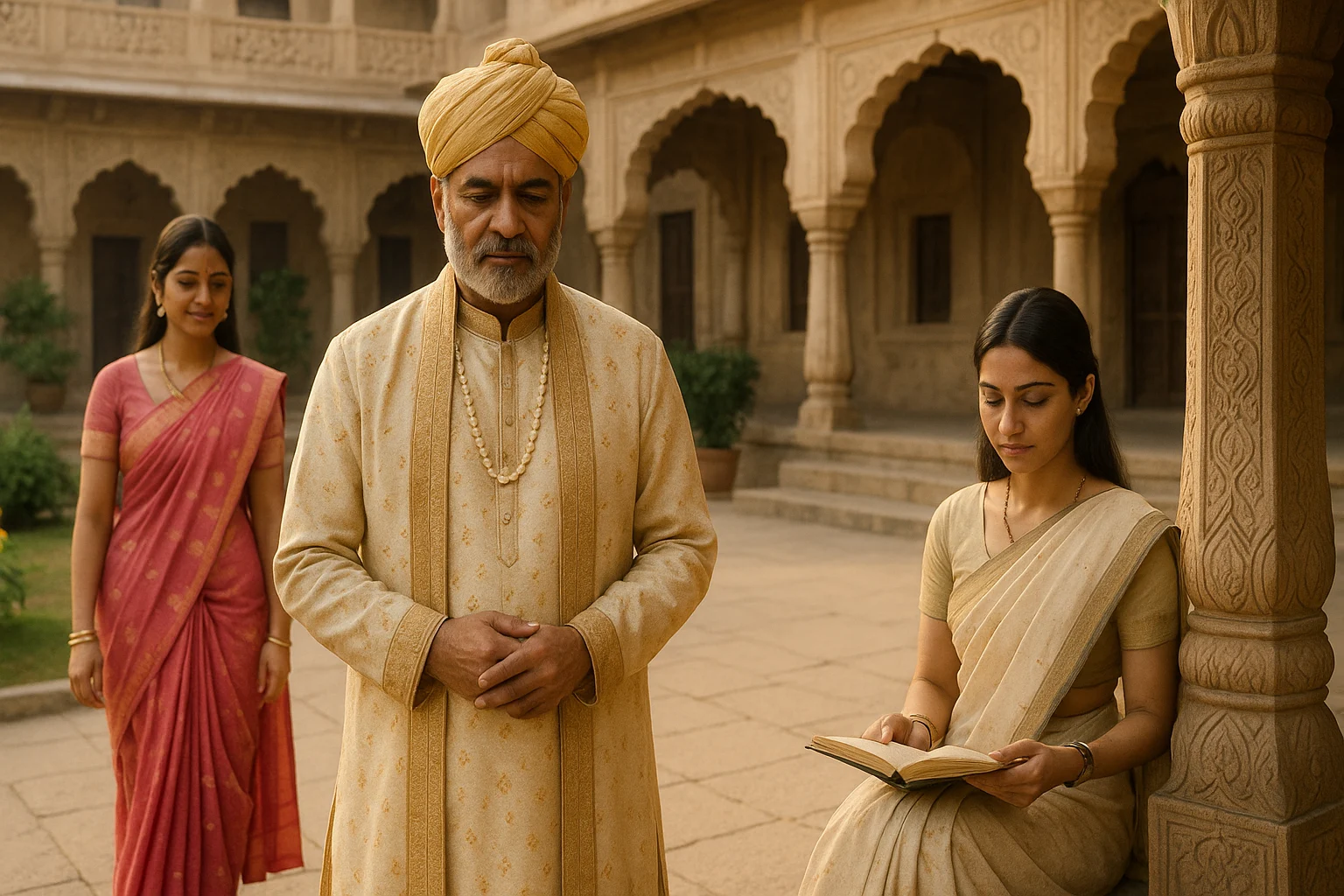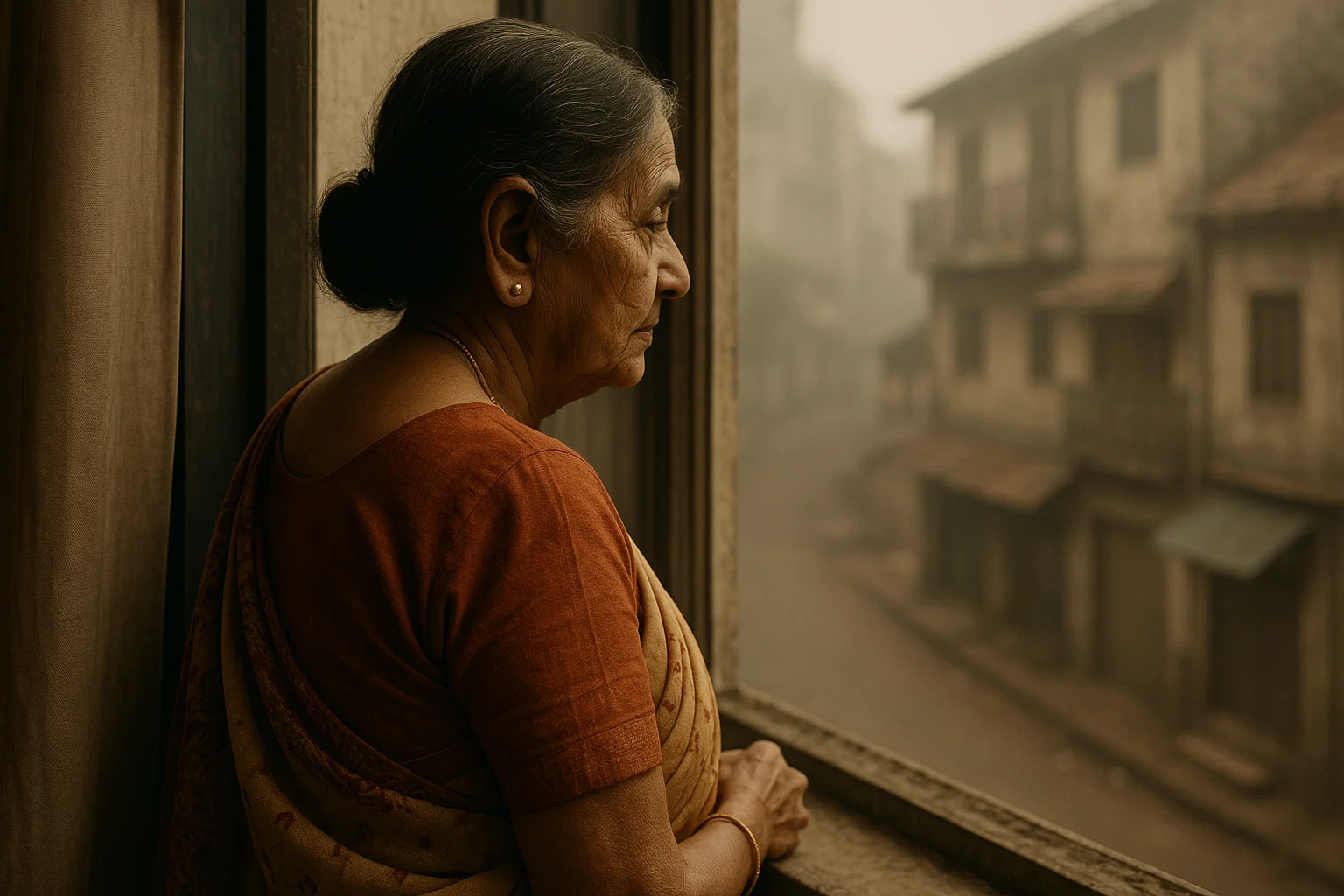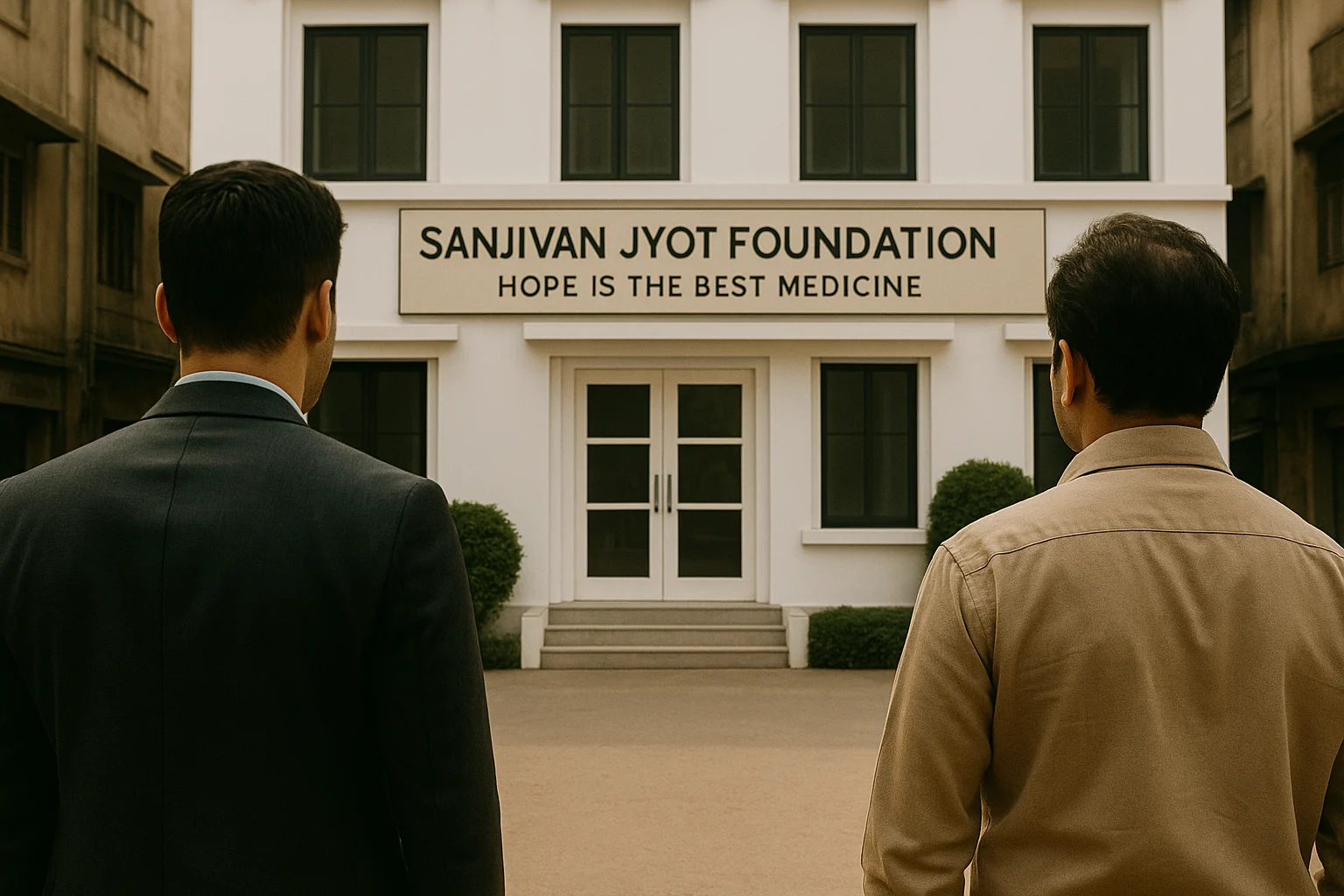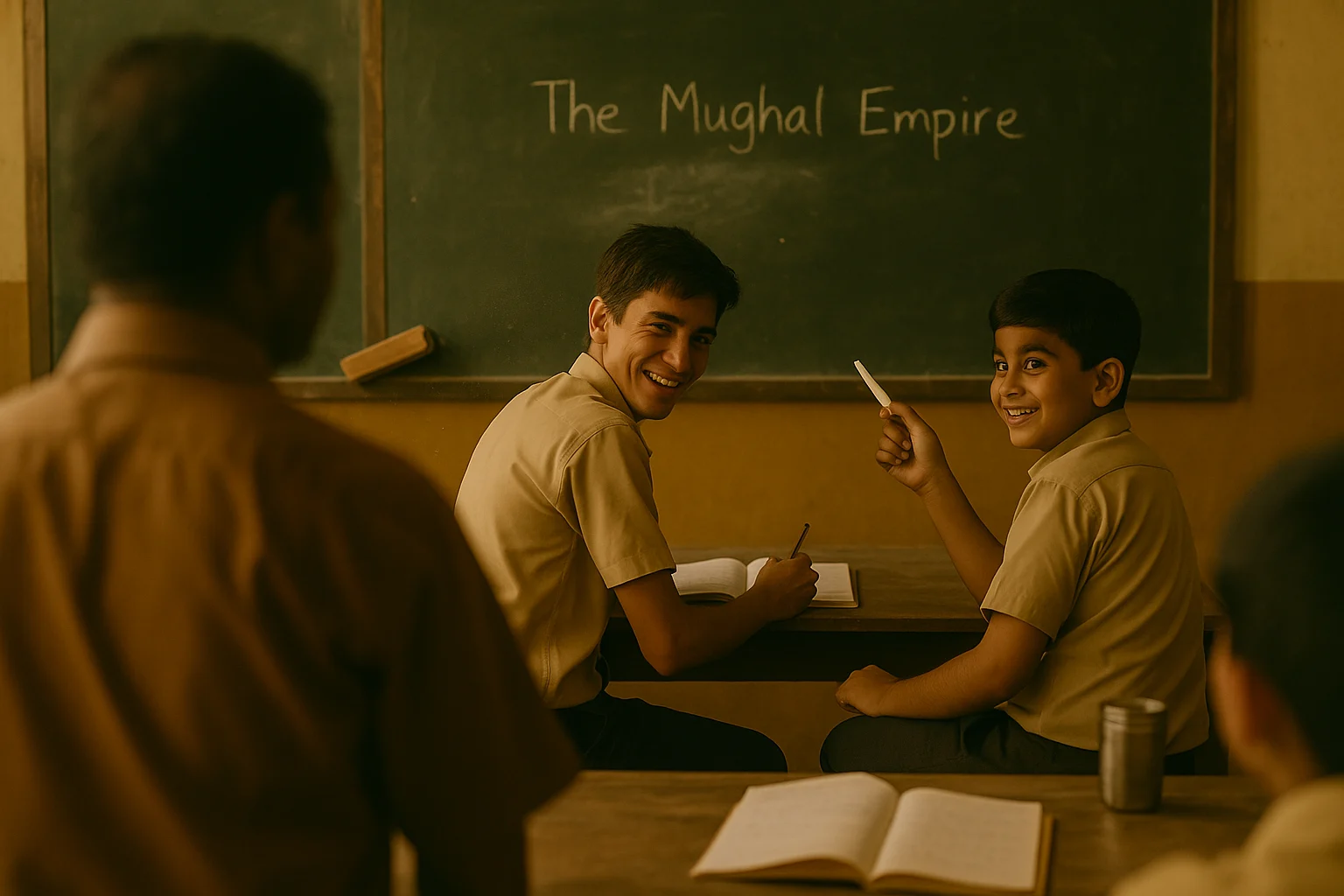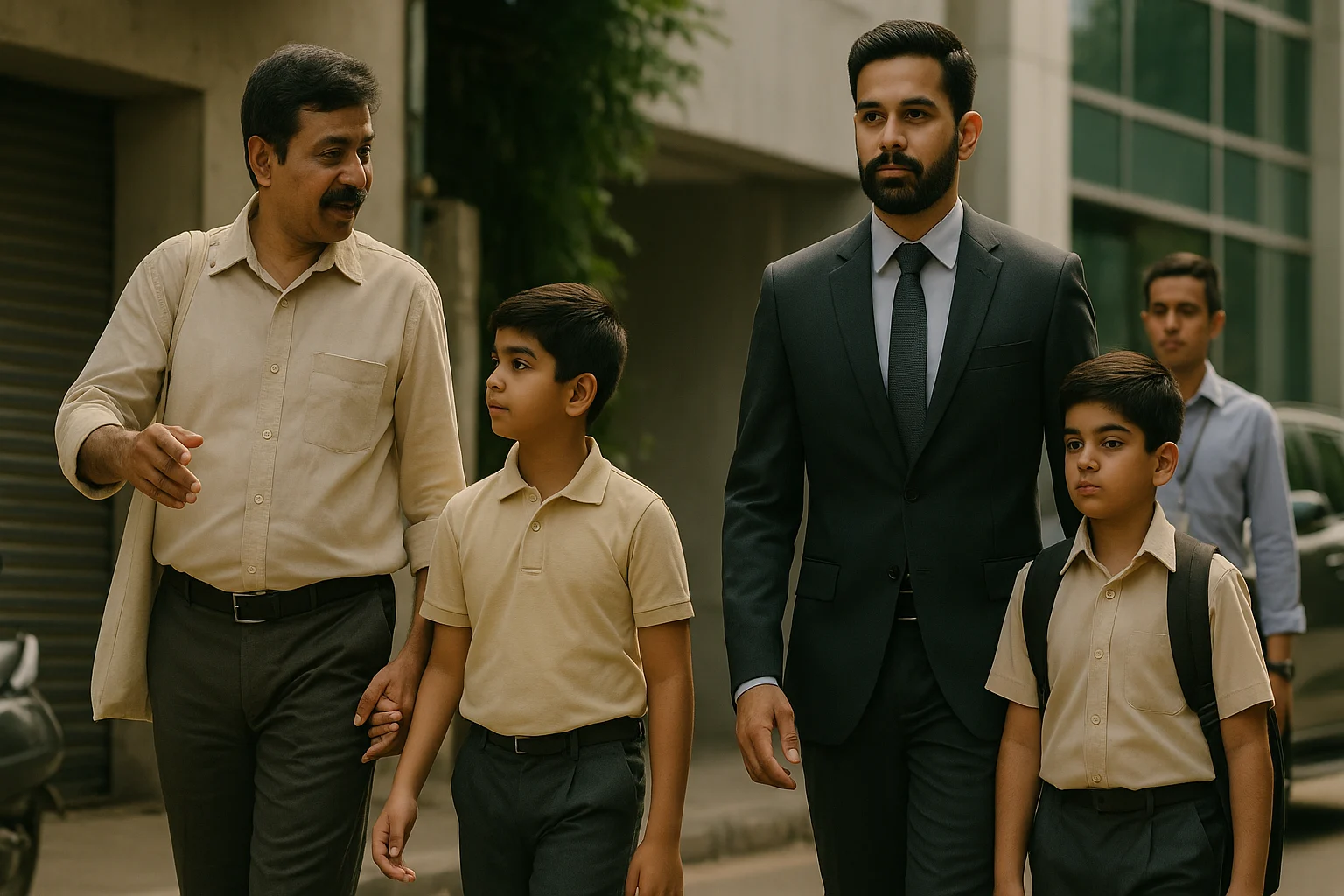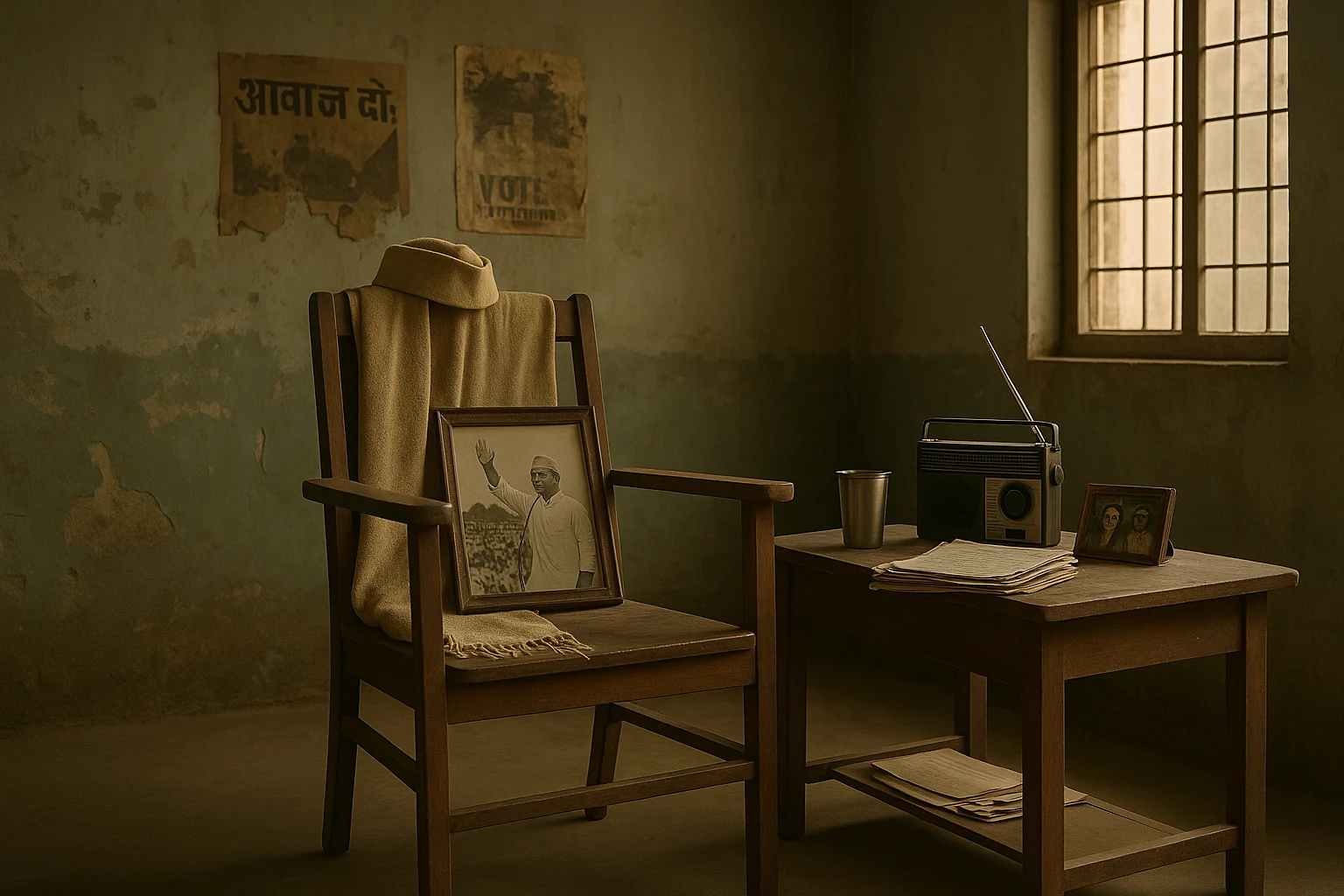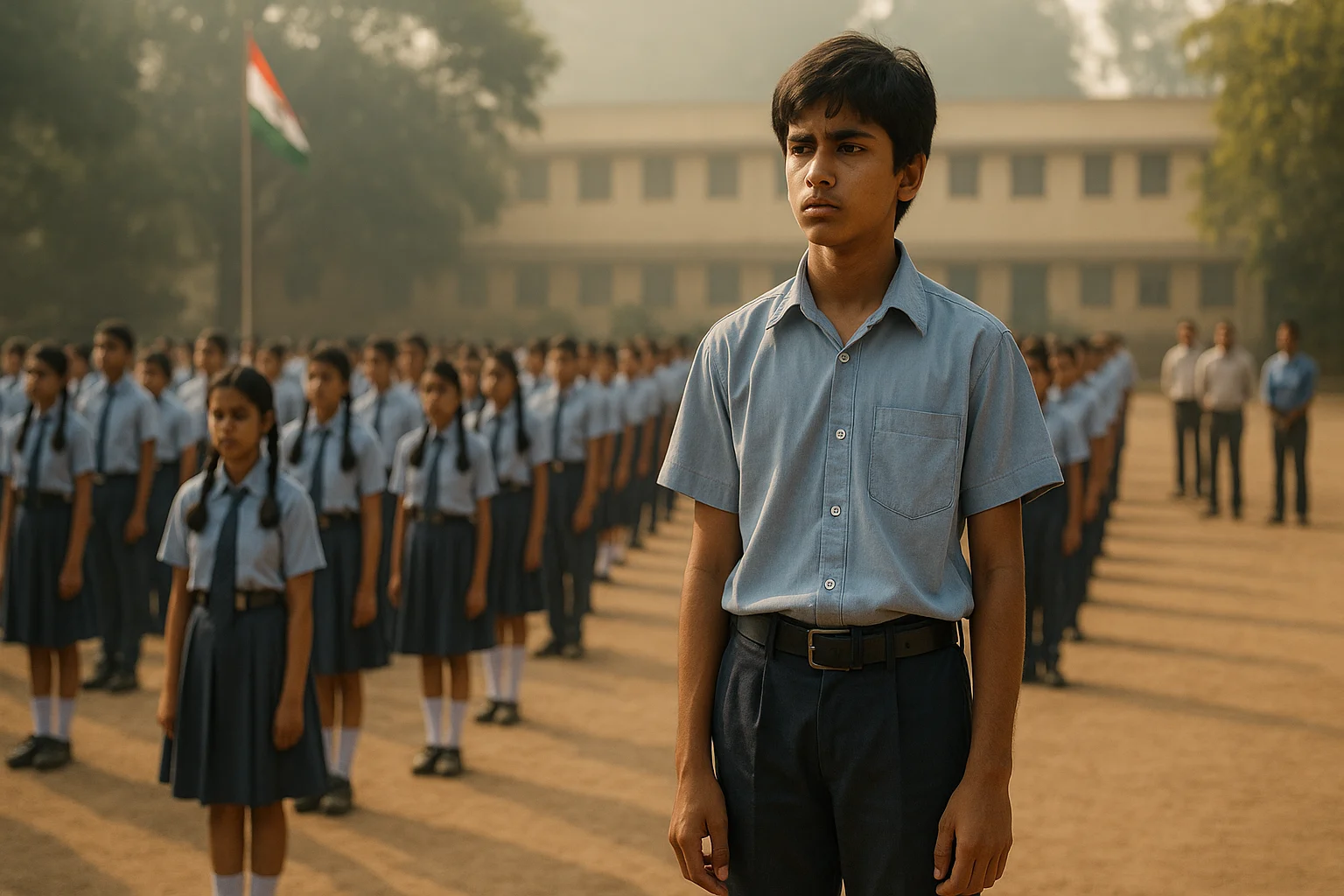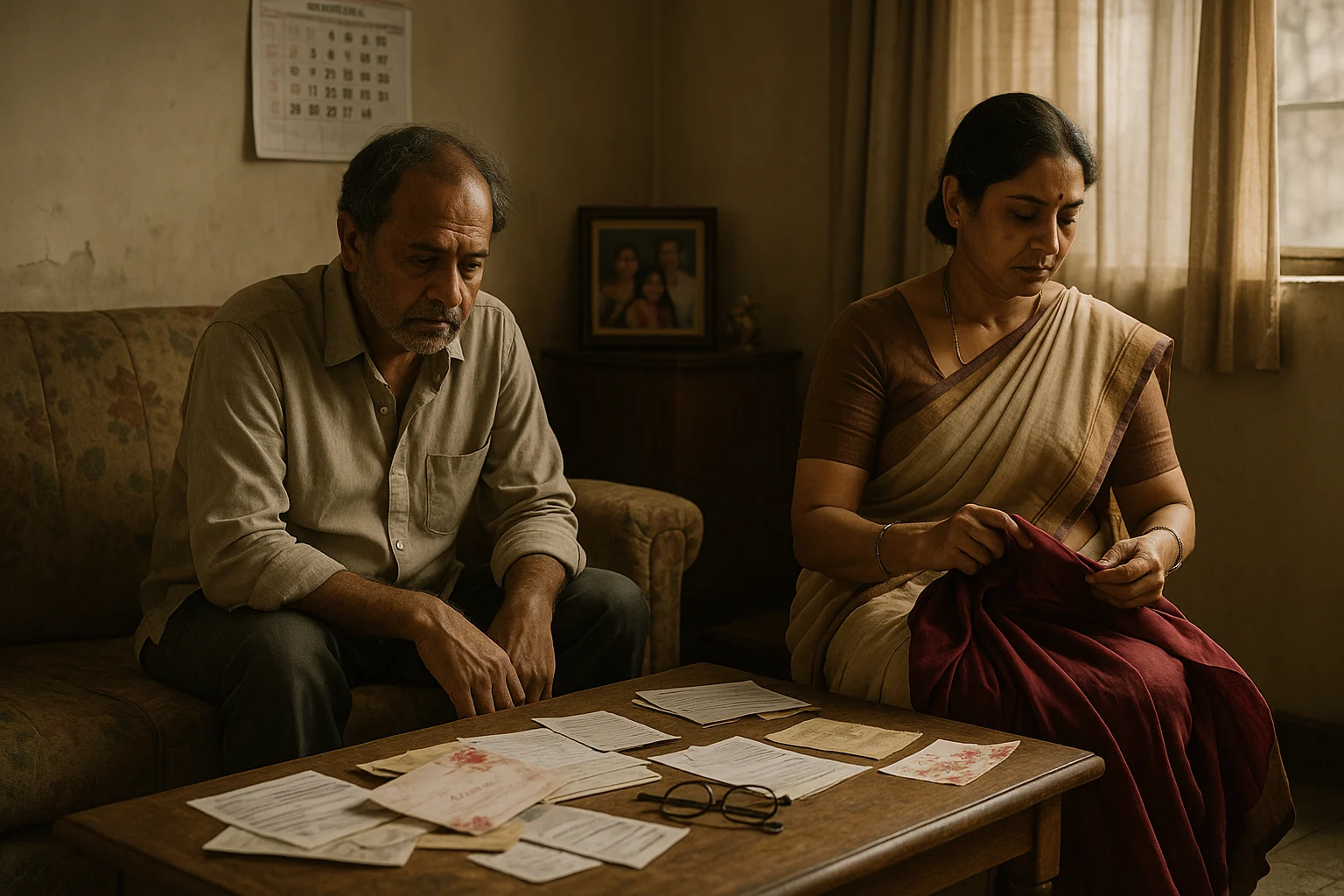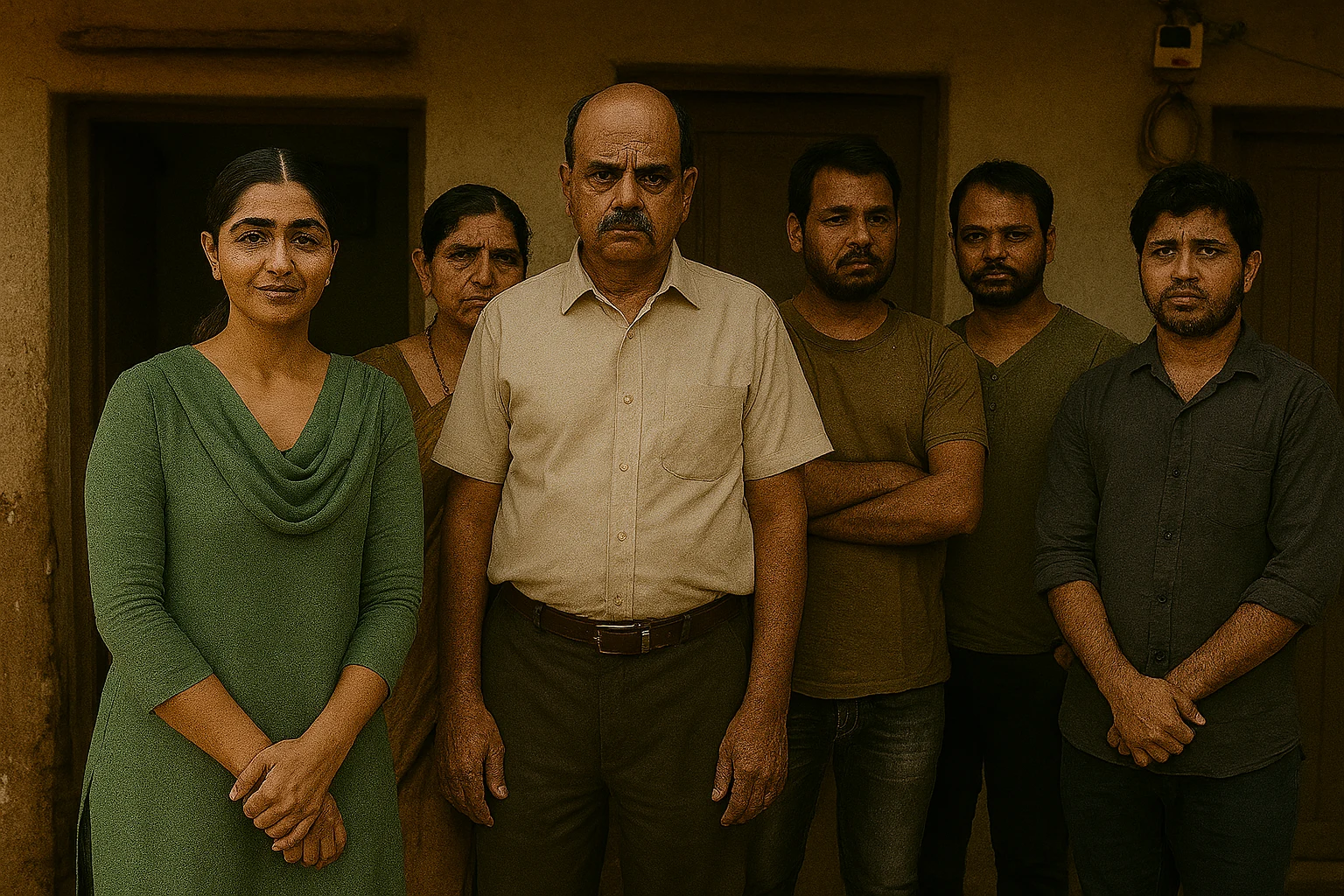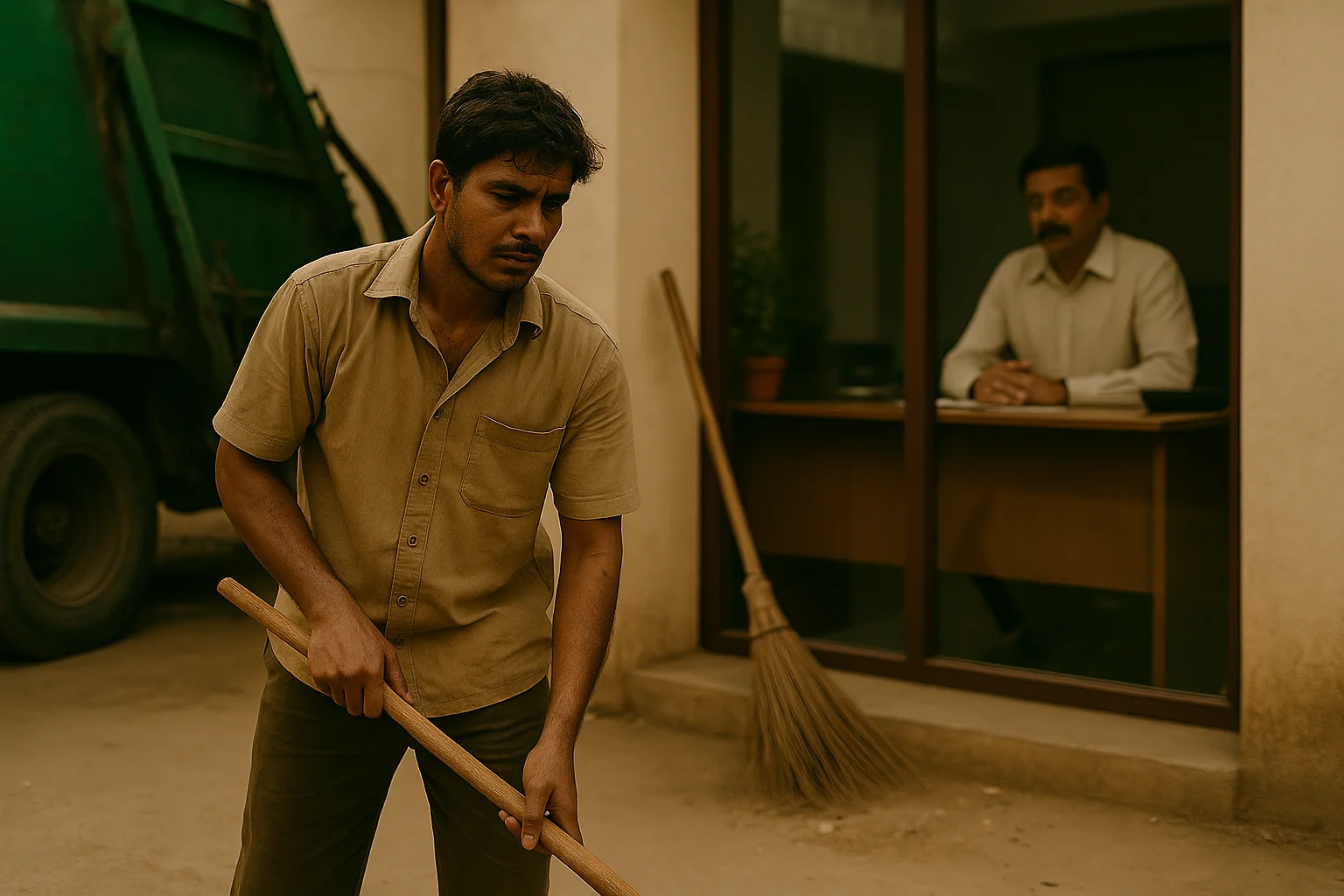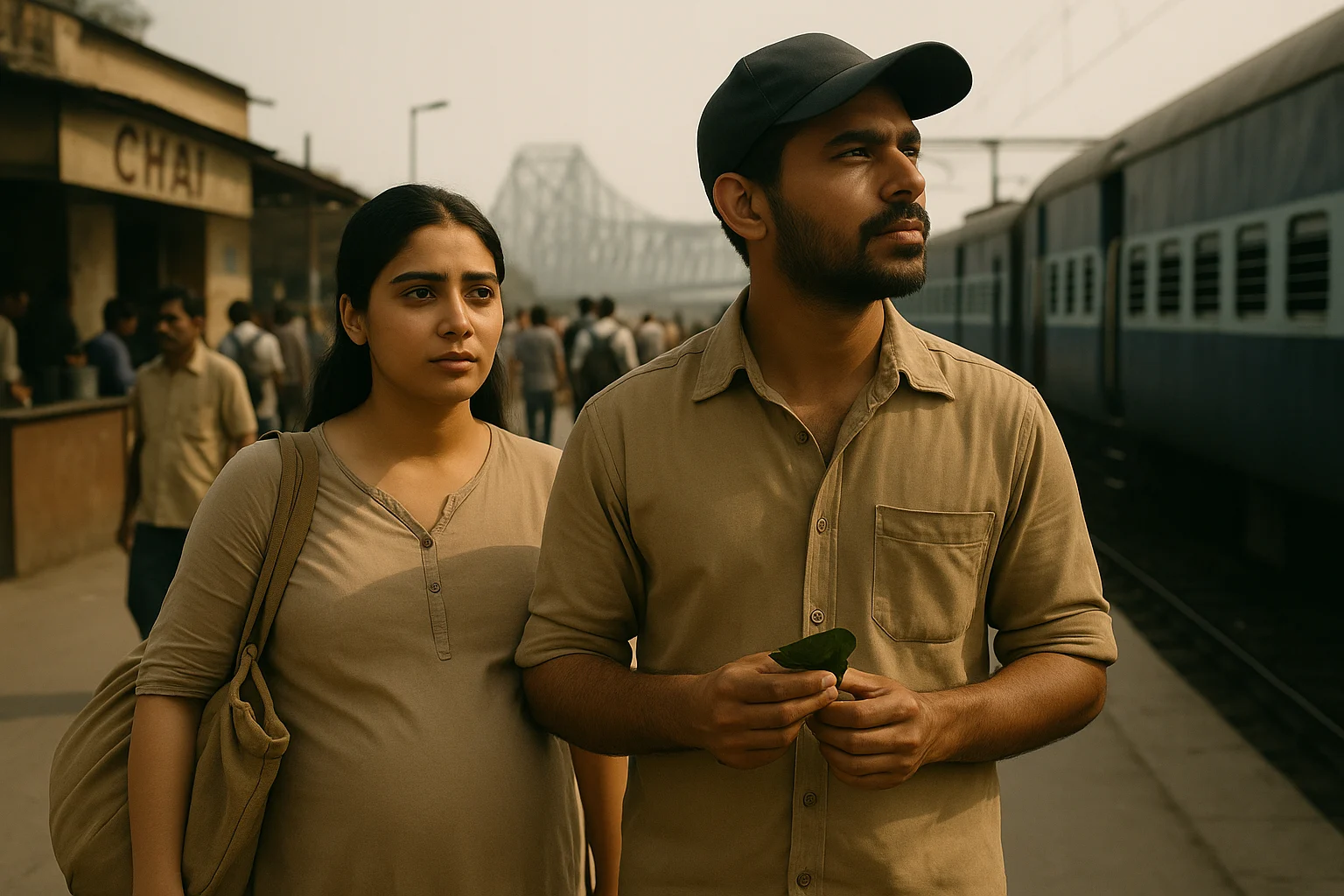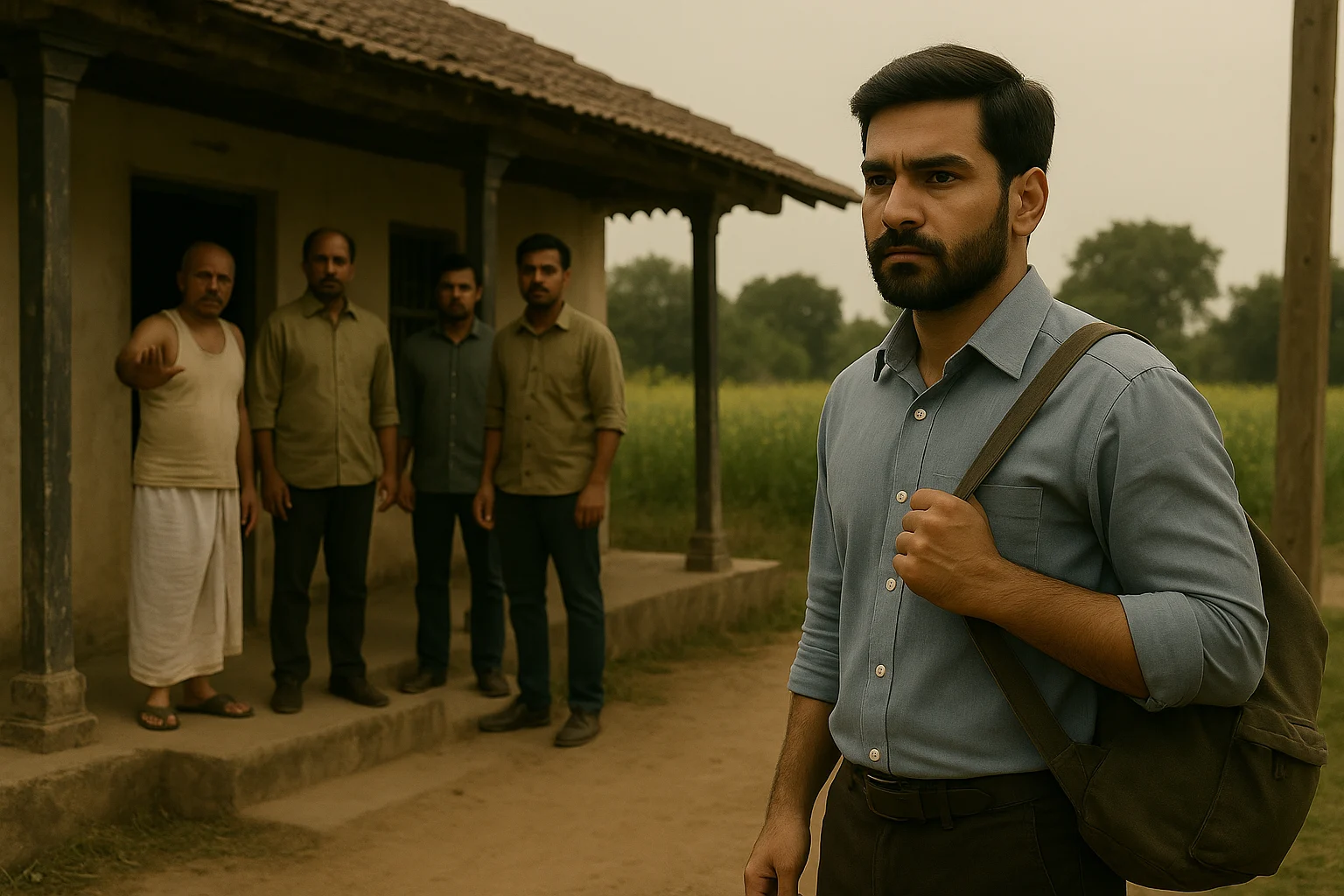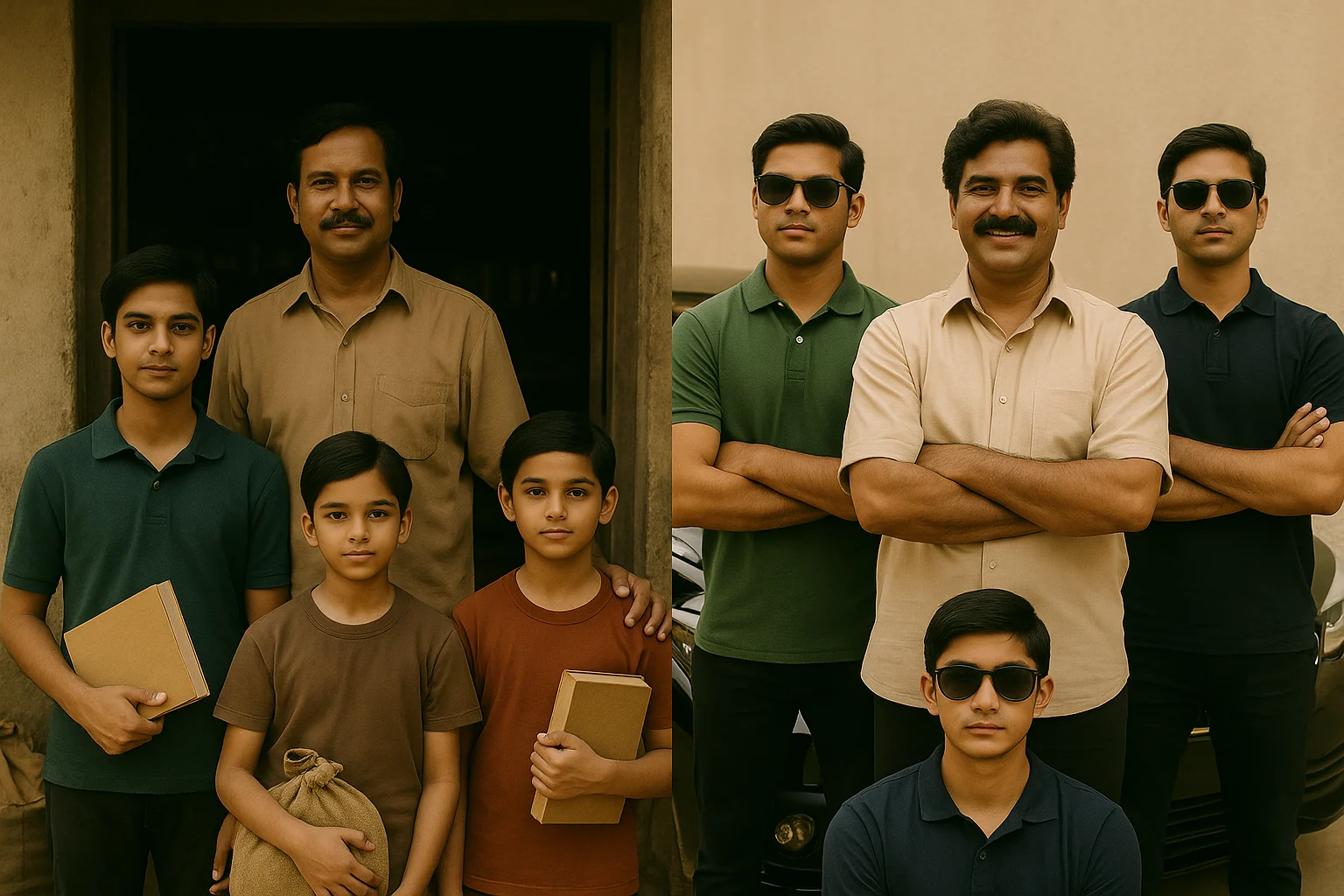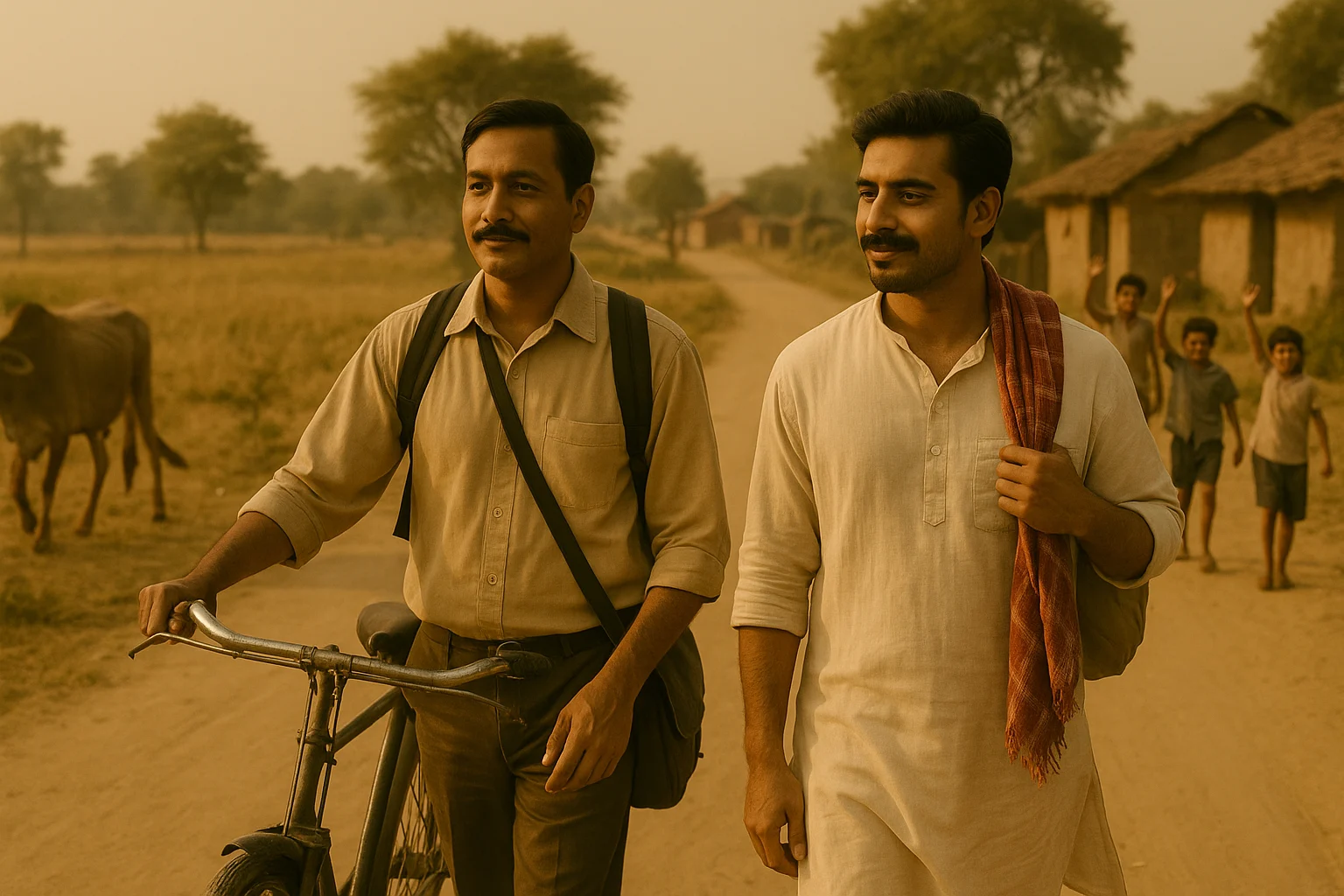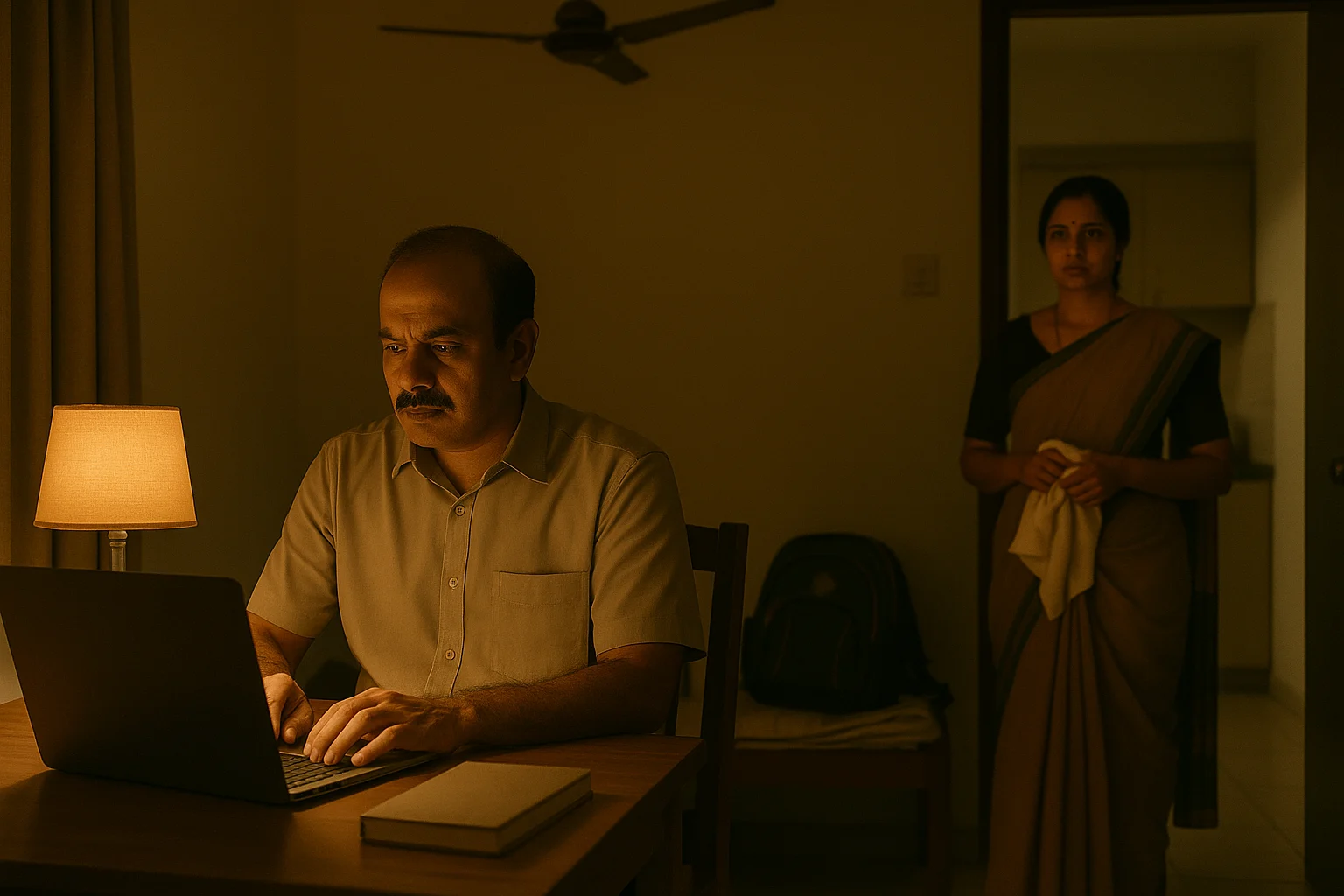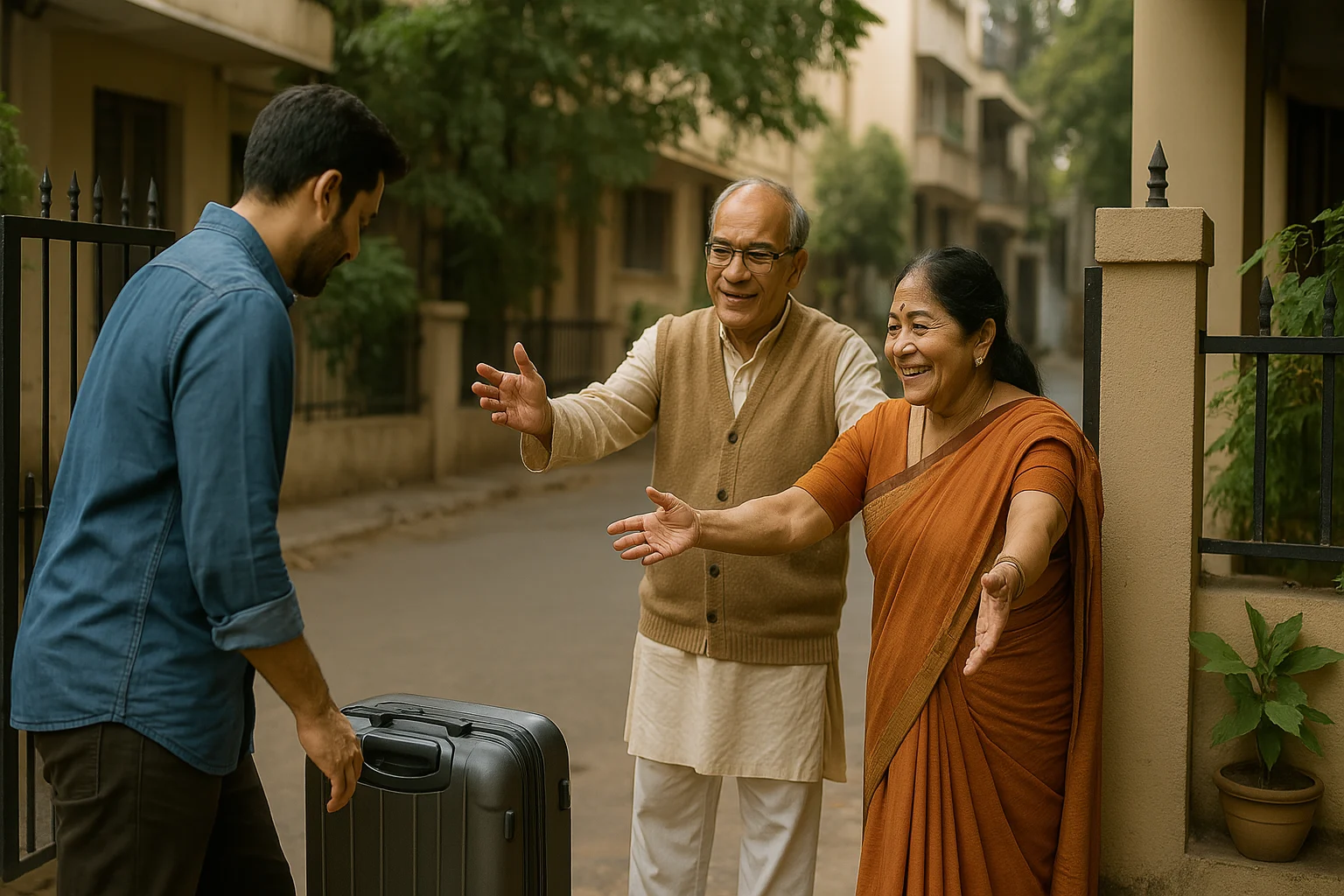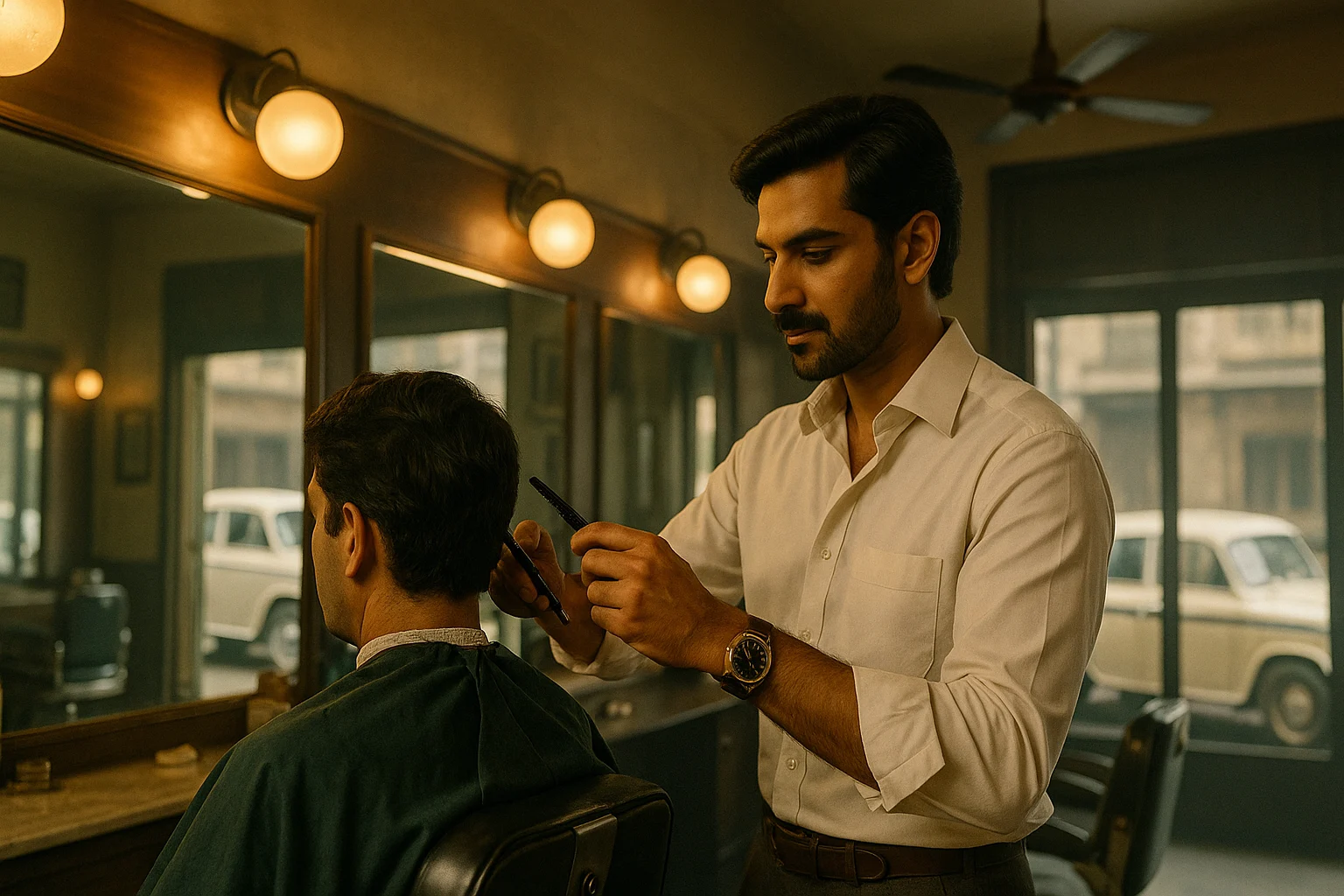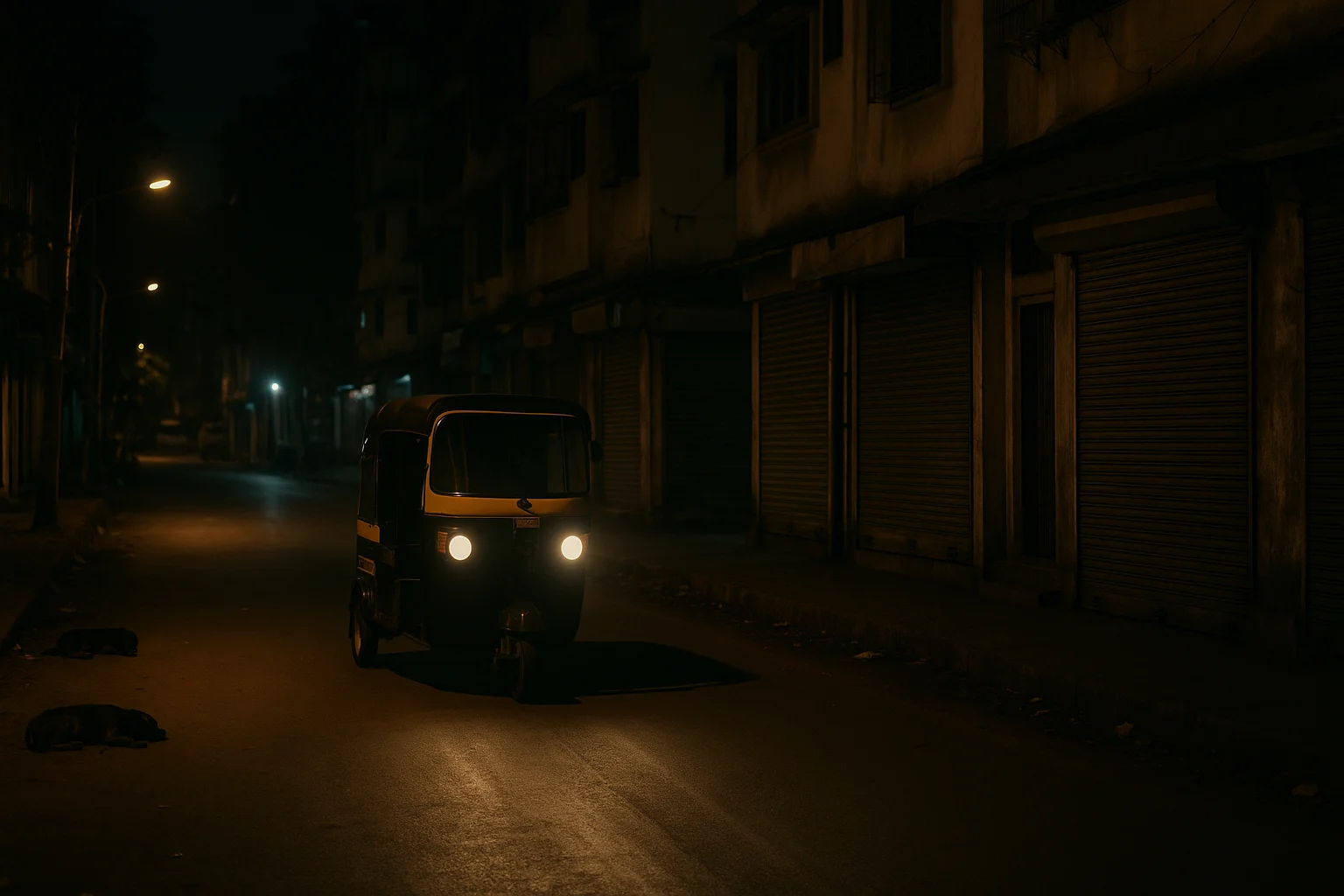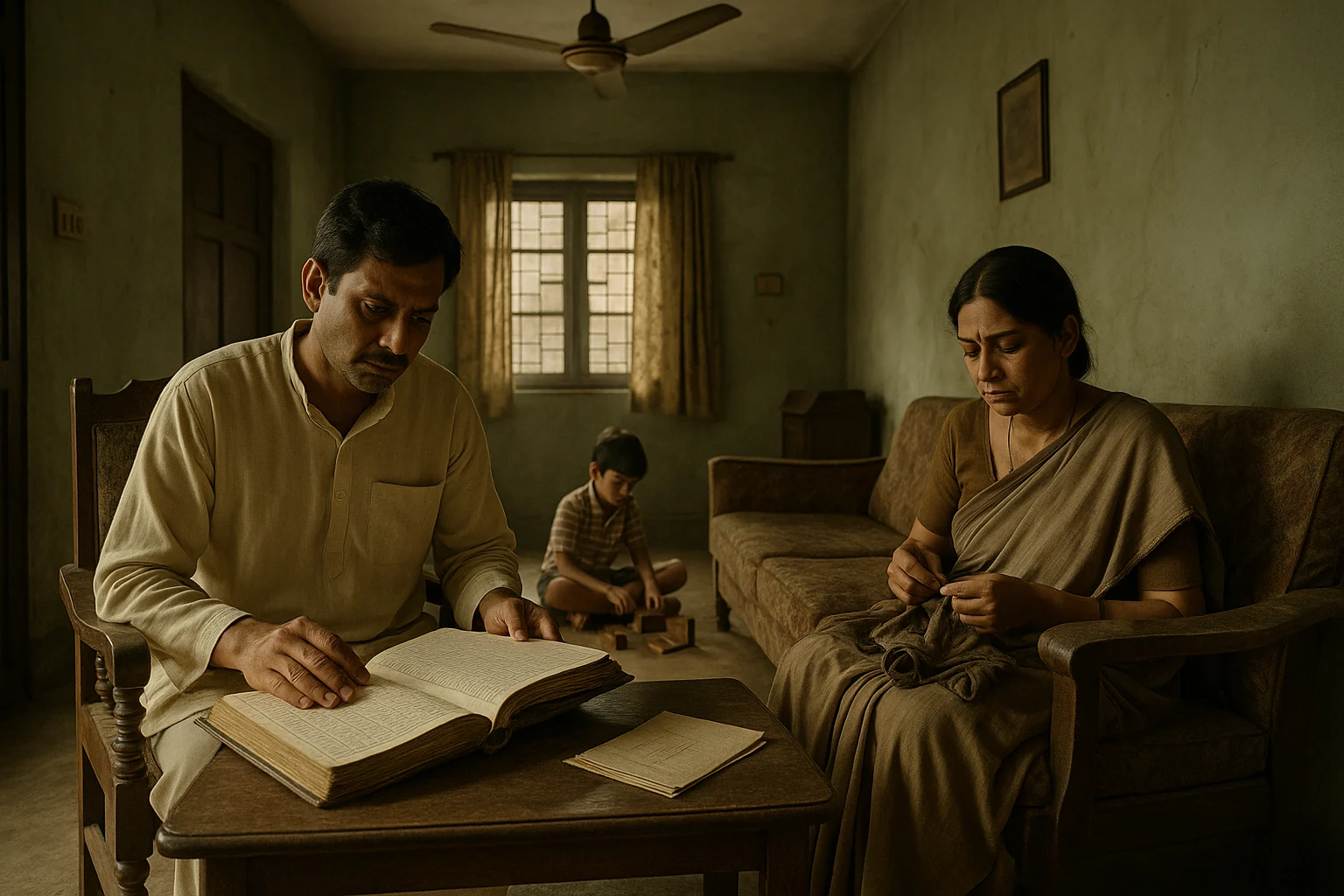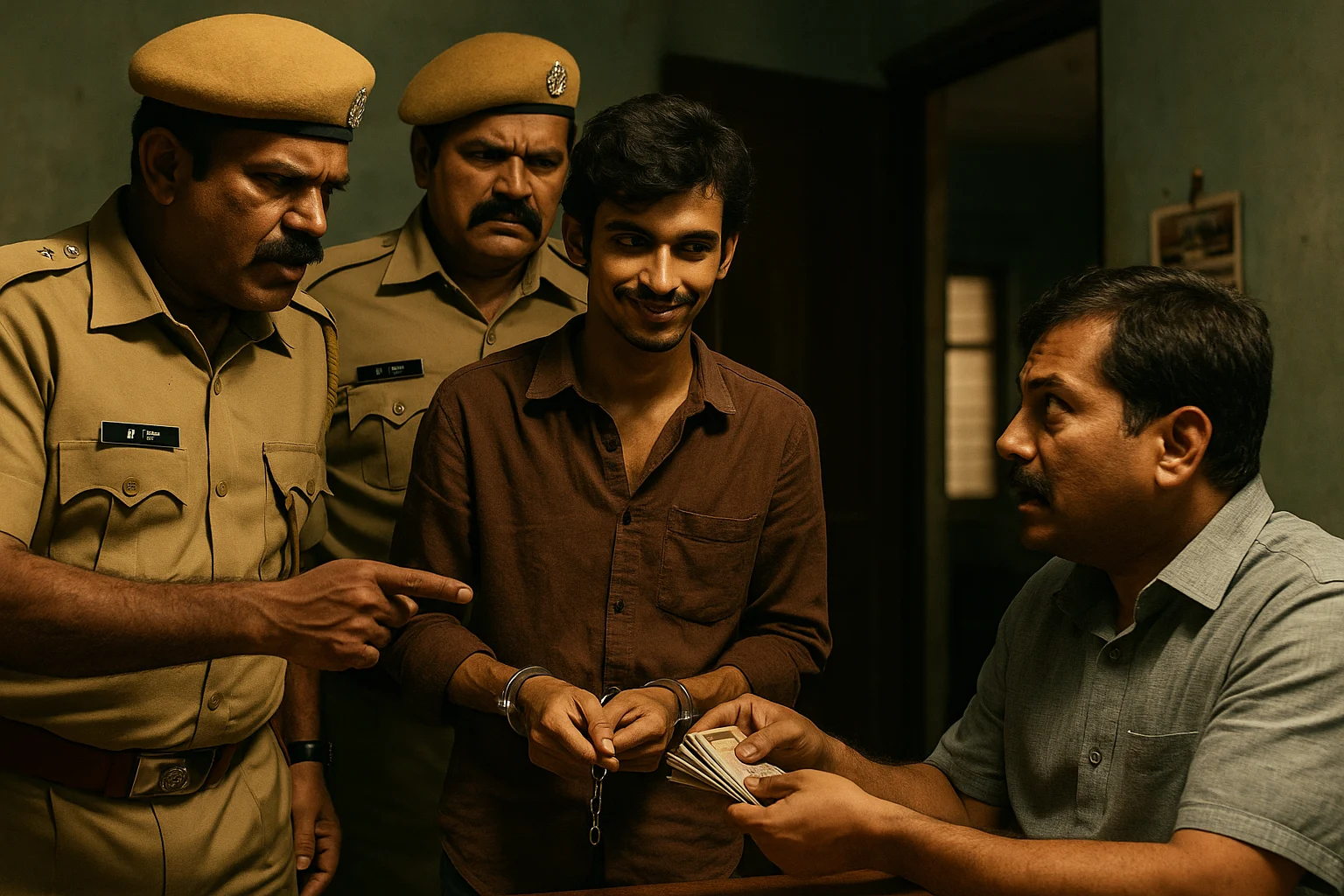Arvind Shastri – The Voice of Ranchi
In the growing city of Ranchi, where glass towers stood beside crumbling lanes, one man’s name carried both respect and fear—Arvind Shastri.
By profession, he was a wealthy businessman with interests in construction, real estate, and logistics. But beyond his wealth, his passion was activism.
Arvind believed a society could only progress when ordinary people had the courage to challenge injustice. Unlike many businessmen who quietly secured their profits, he raised his voice against corruption. He filed Right to Information (RTI) applications, exposed scams in road contracts, and often stood with citizens protesting against bribes at government offices.
At rallies, he didn’t mince words.
“Every rupee stolen in corruption is a meal snatched from a poor man’s plate,” he declared once, drawing thunderous applause.
His actions rattled the corrupt. A few officials were suspended. A drug peddling racket was busted. Even small-time criminals feared that someday his sharp eyes would fall on them.
To the people, he was a hero. To criminals, he was a danger waiting to strike.
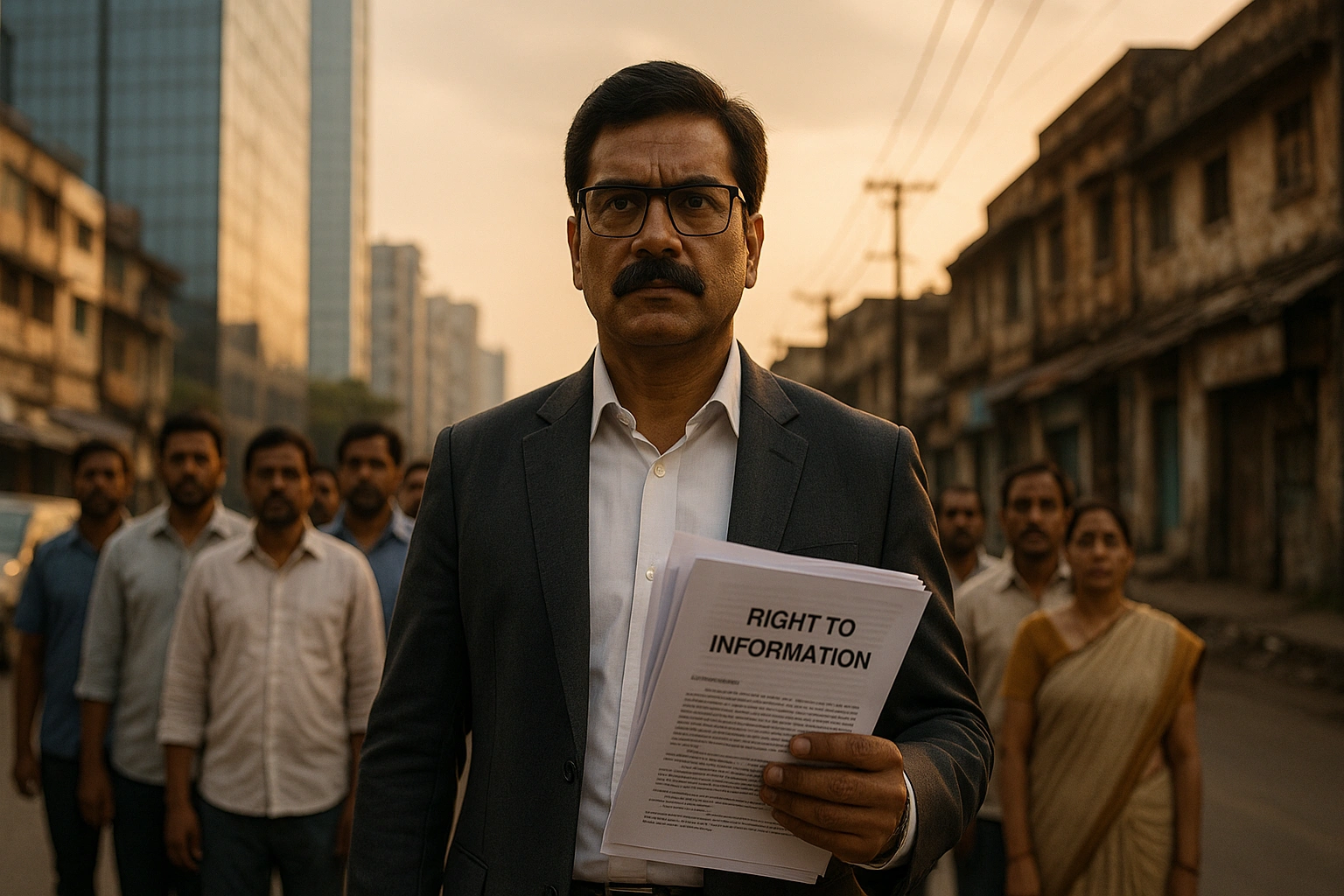
The Fear of Two Robbers
In the narrow lanes of Ranchi lived two men—Rakesh Sharma and Jitendra Yadav.
They were not mafia dons or big gangsters, just local robbers who survived on snatchings, burglaries, and the occasional highway robbery. Yet in their little world, they thought of themselves as clever operators.
Whenever they heard Arvind’s name, unease grew.
“You’ve seen what happened to those drug dealers,” Jitendra said one night, sipping cheap rum. “Shastri made sure they landed in jail. What if he points at us?”
Rakesh, more hot-headed, banged his glass on the table. “Then we’ll be finished. No police will listen to us. We need to end him before he ends us.”
The thought was reckless, but fear and alcohol made it sound like survival. Over time, their casual talk turned into a plan.

The Stalking Begins
They began tailing Arvind.
From a distance, they watched him leave rallies, meet lawyers, and travel across the city. They noticed that sometimes, he preferred taking shortcuts through isolated stretches to avoid traffic. He often refused police protection, saying:
“I’m not afraid of criminals. If I fear, people will fear too.”
This courage became his vulnerability.
The robbers waited for the right moment.
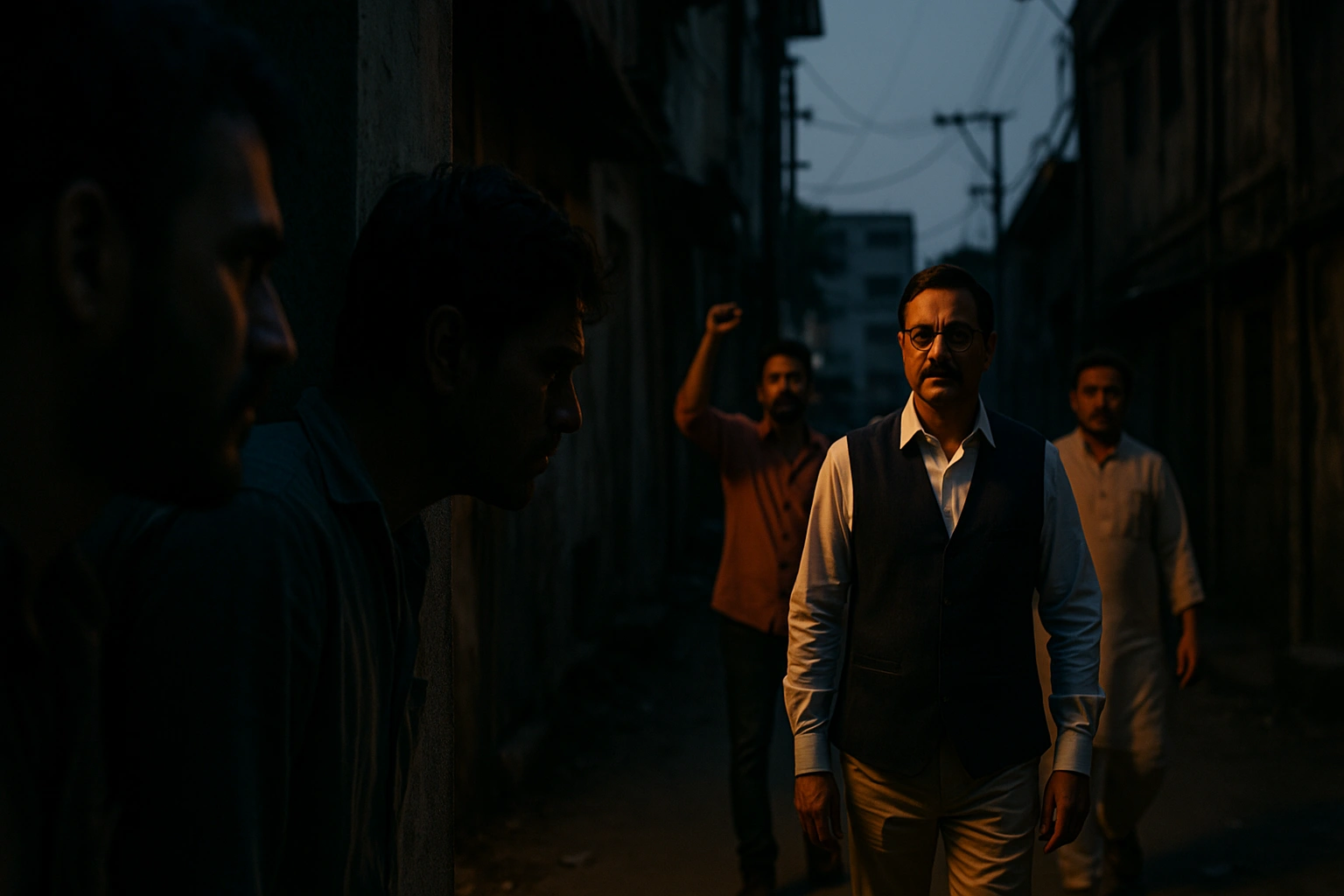
The Night of Disappearance
One evening, Arvind was returning from a meeting on the city outskirts. His car developed a mechanical fault near a deserted stretch. He called a mechanic, but while waiting, he was attacked.
A cloth was pressed to his mouth. A blow struck his head. He was dragged into a van.
The robbers drove him to an abandoned railway siding—a place no one visited after dark. Weeds covered the tracks, and the wind carried an eerie whistle.
There, under the dim light of a torch, the murder unfolded.
“Let me go,” Arvind pleaded. “You don’t know what you’re doing.”
But panic had consumed them. With trembling hands, they tightened the rope around his neck. A struggle followed. Then silence.
His body was buried in a shallow grave. They patted down the earth, breathing heavily.
“No one will ever know,” Jitendra muttered.
“It’s perfect,” Rakesh replied, though his voice betrayed unease.
They walked away, believing they had buried both a man and his legacy.

Ranchi in Shock
By morning, the city was in uproar. Arvind Shastri had vanished.
News channels flashed breaking headlines. His family wept on television, begging for help. Ordinary citizens poured into the streets with placards and candles.
The government, under pressure, demanded swift action. “Find him at any cost,” the Chief Minister instructed the police.
The police formed special teams. Dozens of suspects were interrogated—contractors, rival businessmen, and criminals who had clashed with Arvind.
Every lead ended in disappointment.

Months of Frustration
For weeks, the police raided hideouts, tapped phones, and followed tips. Nothing concrete emerged.
“Maybe he ran away,” one officer whispered, but the idea was dismissed immediately. Arvind was not the man to disappear on his own.
Meanwhile, the media grew harsh.
“Is Ranchi Police incompetent?” screamed one headline.
“Activist vanished, law helpless!” said another.
Inside the police control room, frustration was boiling.
“It’s like he vanished into thin air,” sighed an inspector one night.
Months turned into nearly a year. The case file gathered dust. Ranchi mourned but slowly moved on.
For Rakesh and Jitendra, life continued. They avoided talking about the murder but quietly celebrated their survival. They truly believed they had committed the perfect crime.
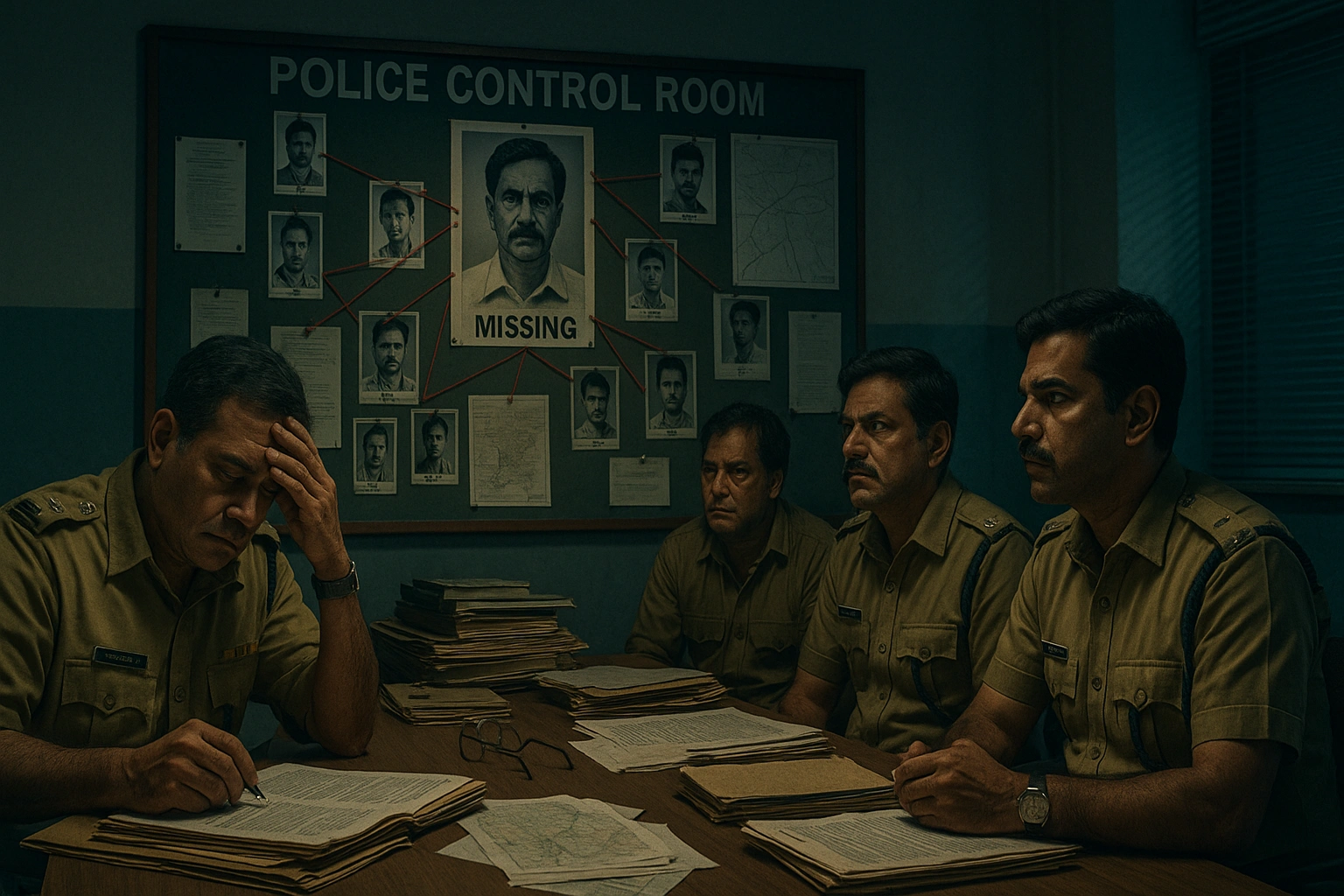
A Robbery That Changed Everything
Then came the twist of fate.
Almost a year later, Ranchi was shaken again—the biggest jewelry shop in the city was robbed. Millions worth of gold vanished.
This time, the jeweler was influential. Forensics rushed to the scene within hours. They dusted every surface. And then came the breakthrough—a fingerprint match.
The name blinked on the screen: Rakesh Sharma.

The Drunken Arrest
Through informers, police tracked him to a seedy bar. Rakesh sat at a corner table, surrounded by half-empty bottles, laughing loudly.
When officers swooped in, he barely resisted. He was dragged to the station, reeking of alcohol.
“Where’s the gold?” the inspector demanded.
“You’ll never find it,” Rakesh slurred, smirking.

The Psychological Pressure
The interrogation went on for hours. Cigarette smoke filled the room. Officers circled him like predators.
“You think you’re clever?” one inspector whispered. “We’ve broken men tougher than you.”
Rakesh laughed, his mind foggy with liquor. Arrogance mixed with intoxication loosened his tongue.
And then, in one careless moment, he said it.
“You fools think the robbery is my biggest crime? We buried Shastri too… near the railway siding. Nobody ever found him.”
The room froze. Pens dropped. The air turned heavy.
“What did you just say?” the inspector shouted, slamming the table.
Unaware of the bombshell he had dropped, Rakesh rambled on, giving details—the location, the shallow grave, and his partner Jitendra.
The so-called “perfect crime” collapsed in seconds.
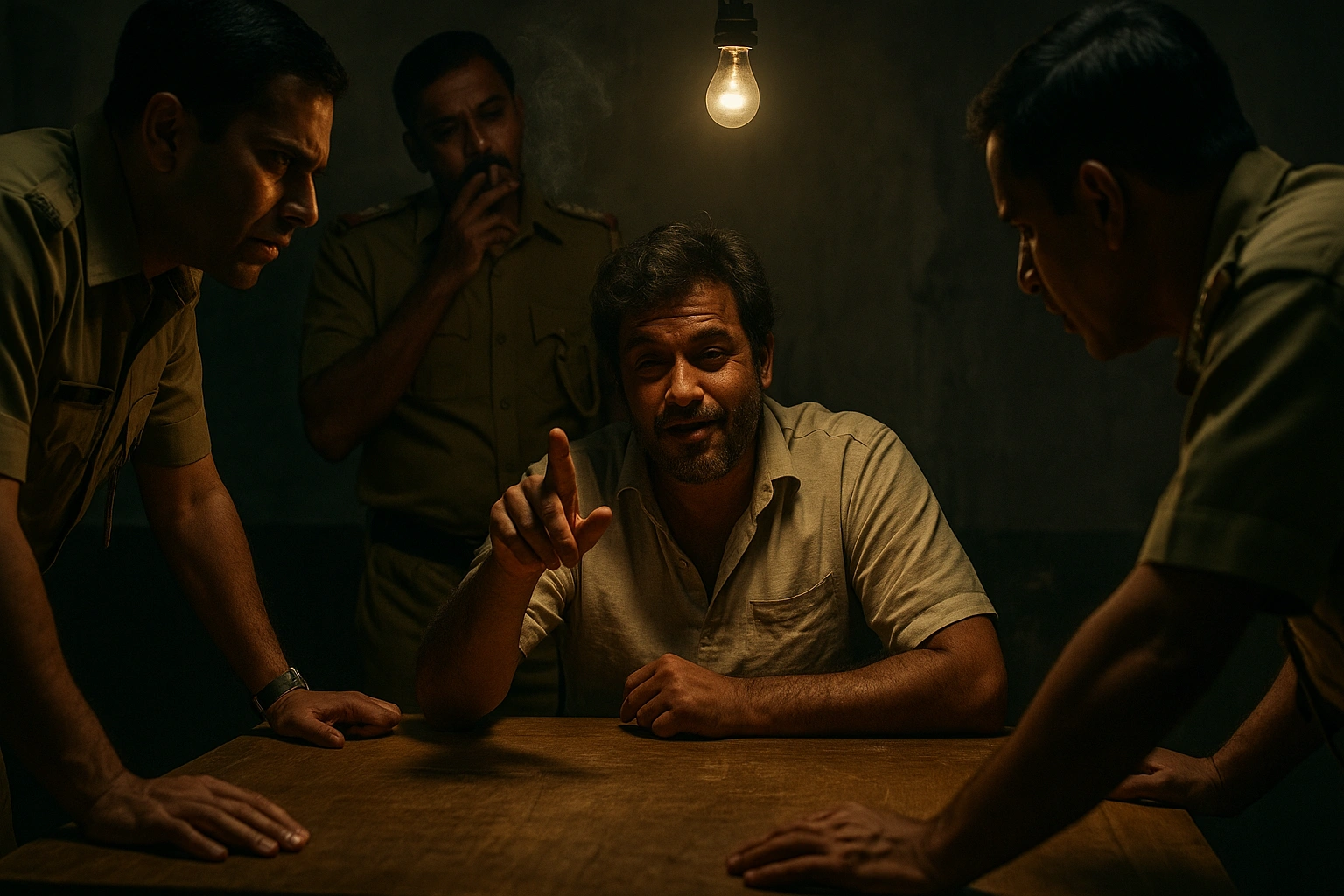
The Body Unearthed
That very night, floodlights lit the abandoned railway siding. Police officers dug feverishly, their shovels striking earth with urgency.
Finally, a spade hit something hard. The ground opened to reveal bones, tattered clothes, and a rusted wristwatch.
It was Arvind Shastri.
The city’s unanswered question had found its tragic answer.
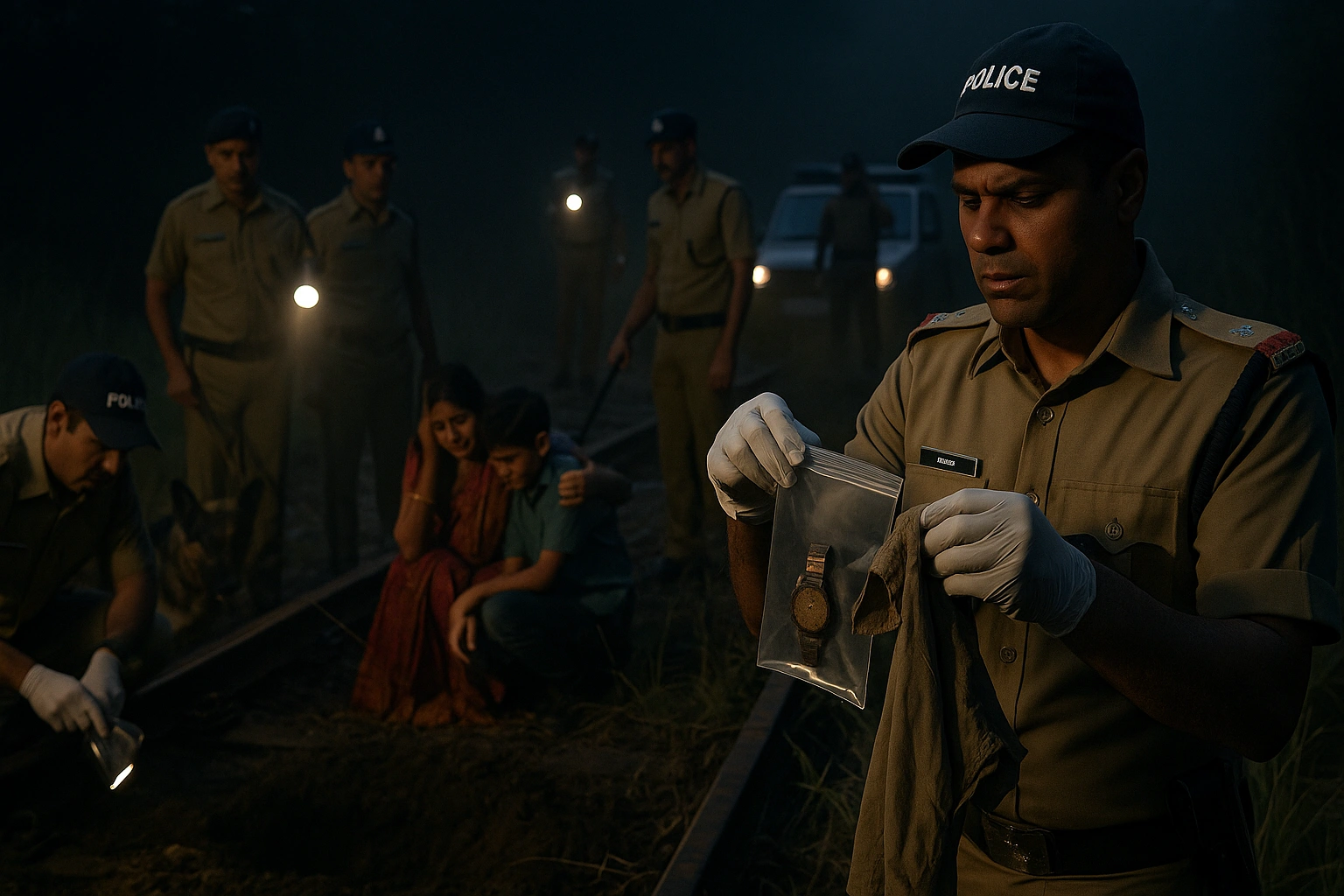
The Second Arrest
Jitendra was arrested soon after from a dingy rented room. He did not resist; his face was pale, his body trembling.
“You thought you’d fooled us all?” an officer sneered as handcuffs snapped shut.
The men who believed they had committed a flawless murder were now exposed by nothing more than a drunken slip of the tongue.
The Lesson
The case file closed with one line etched into memory:
No crime is perfect.
No matter how carefully planned, every crime leaves behind a loose thread. And sometimes, all it takes is a careless word to unravel everything.
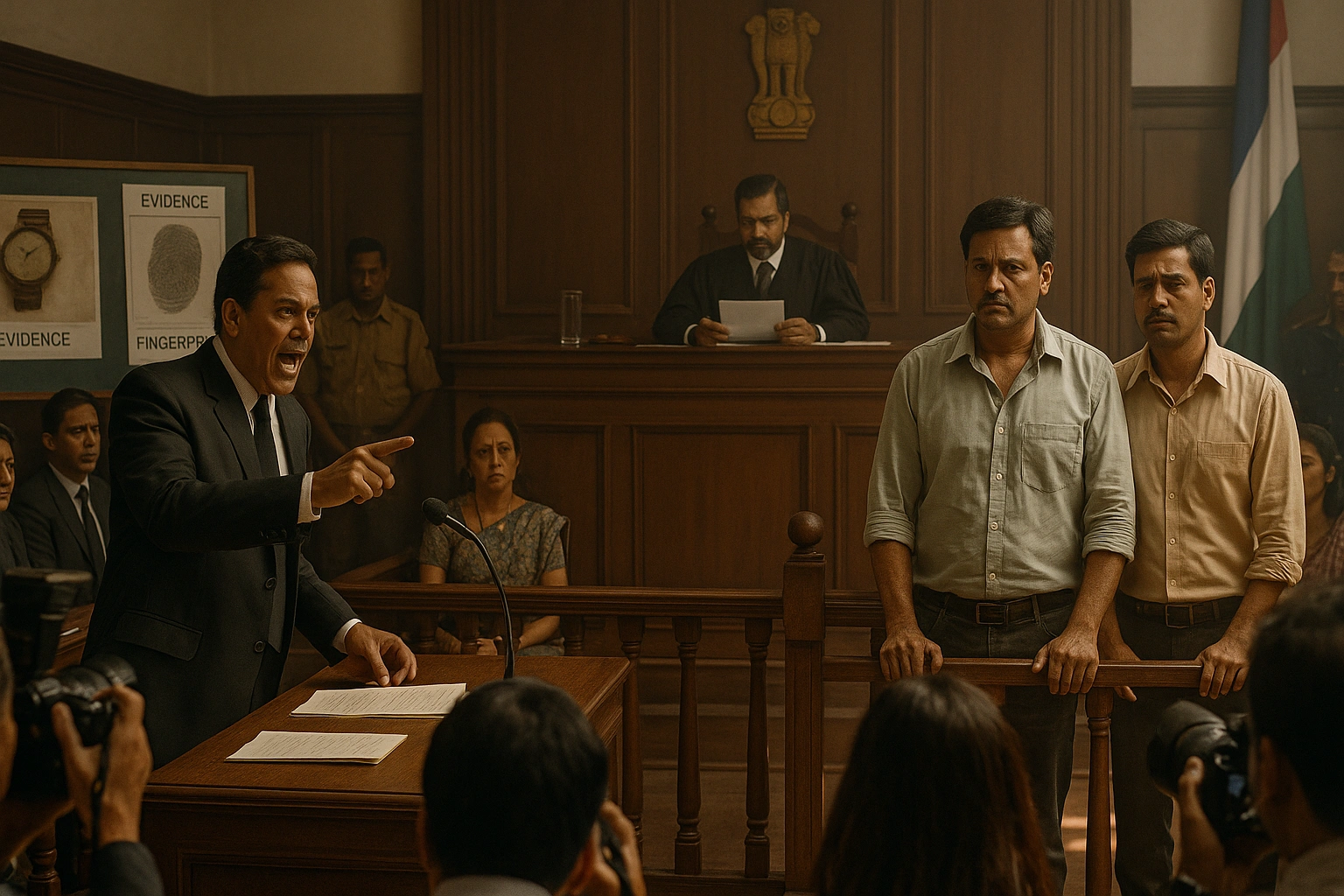
Moral
Truth has its own way of coming out. Criminals may hide it for days, months, or years, but destiny always leaves a crack through which it escapes.
Receive Stories and Articles in your Inbox!
We won’t send any promotional or spam emails.
